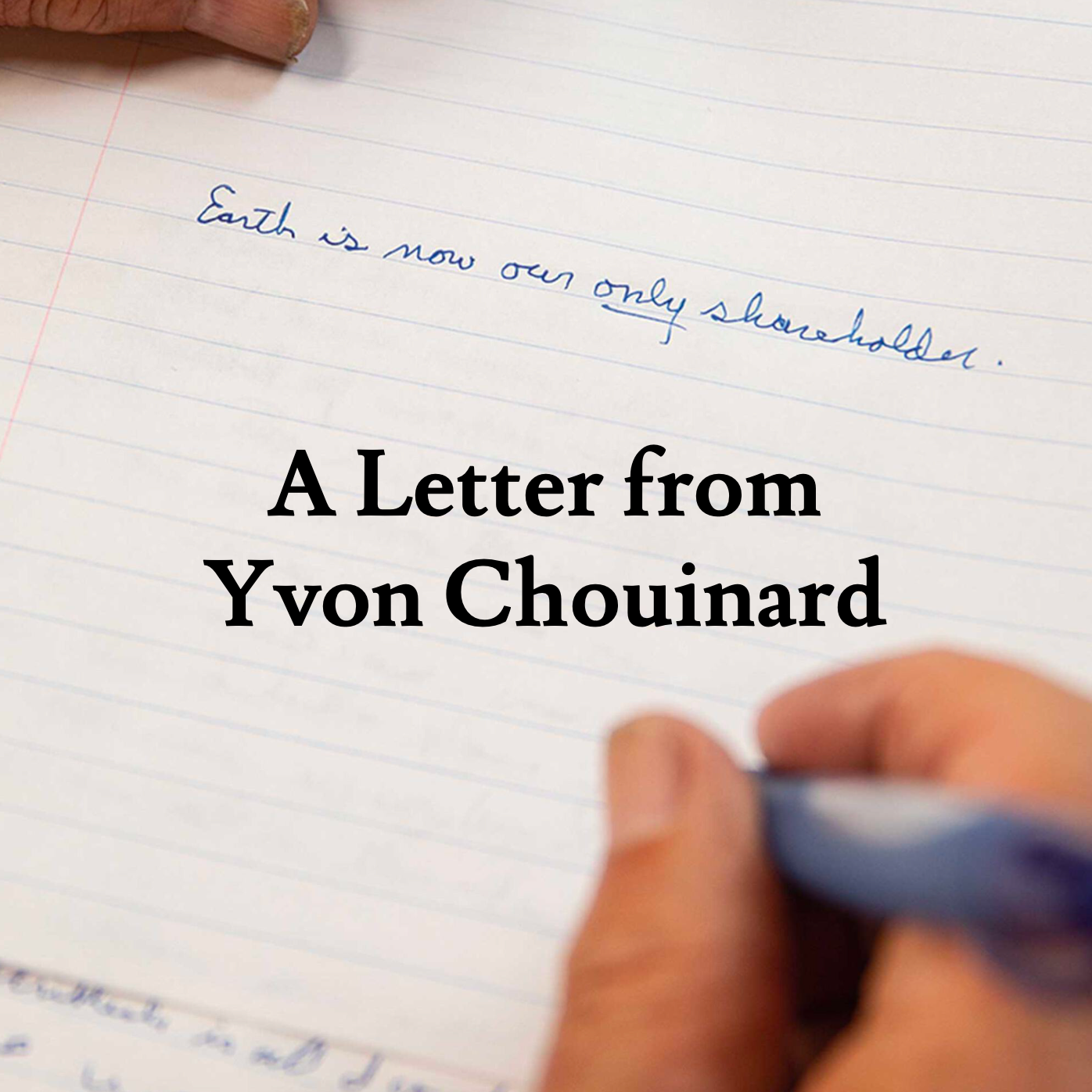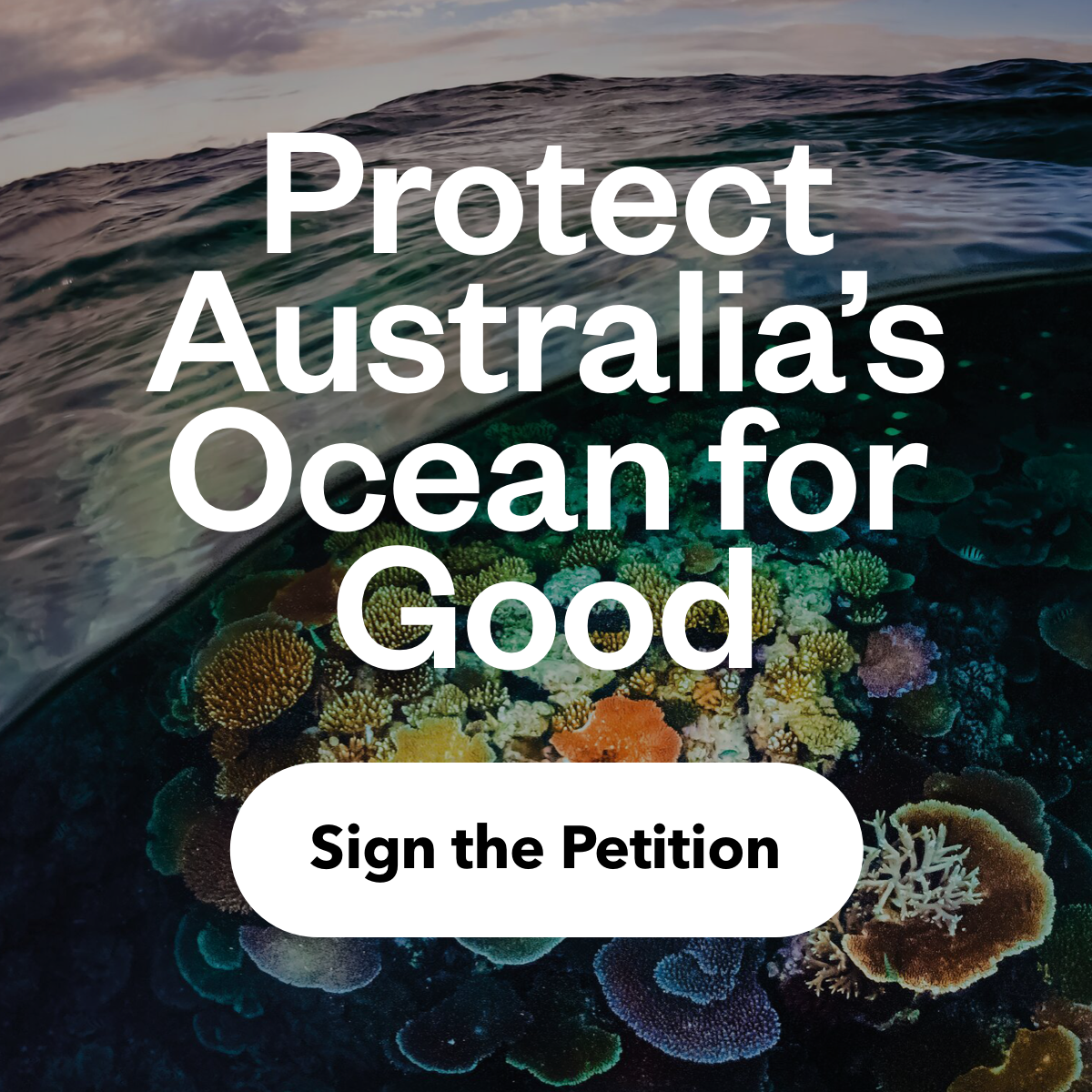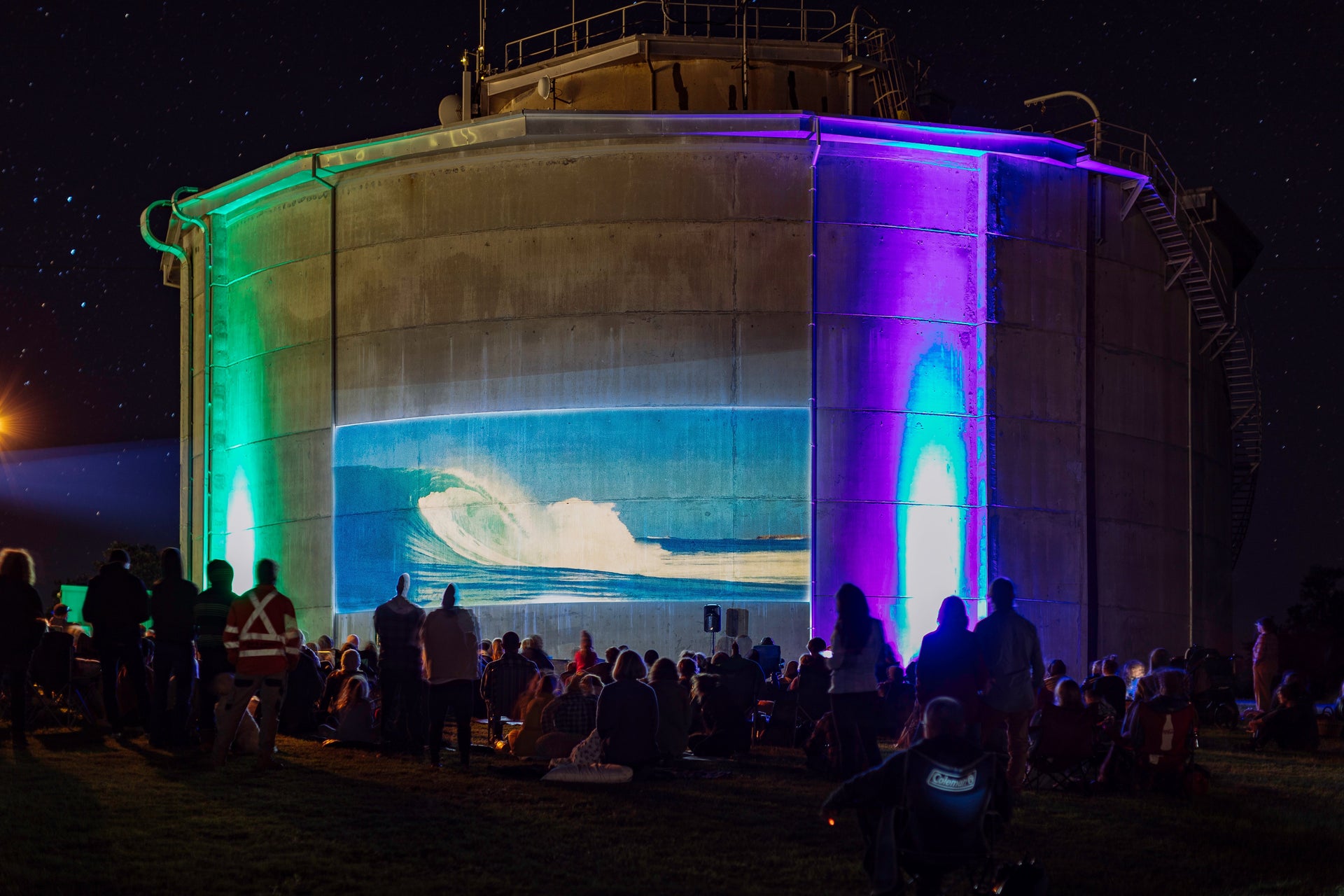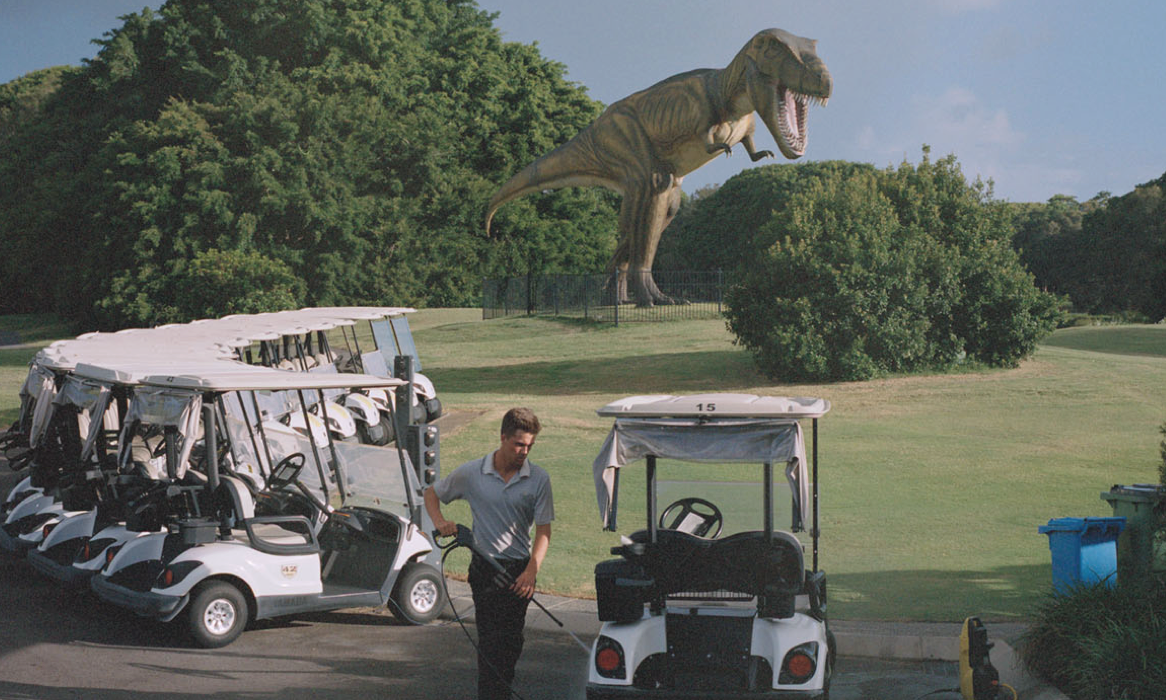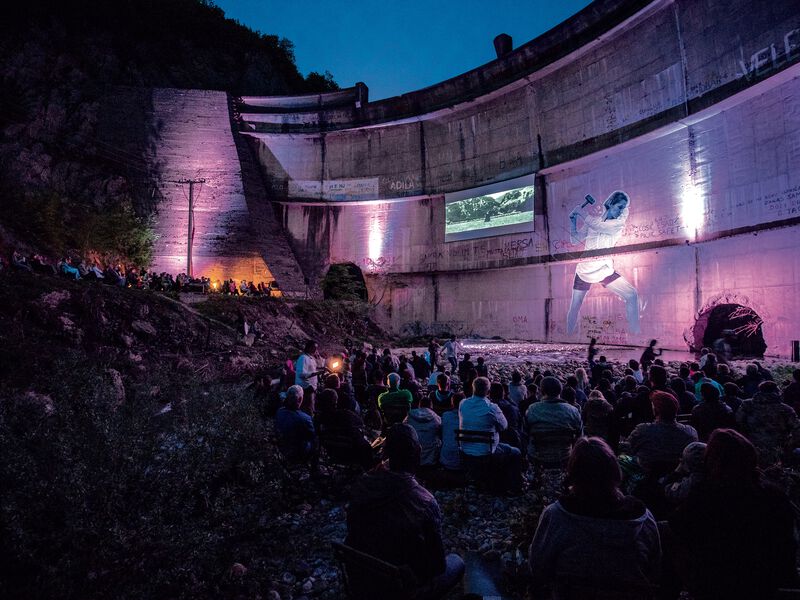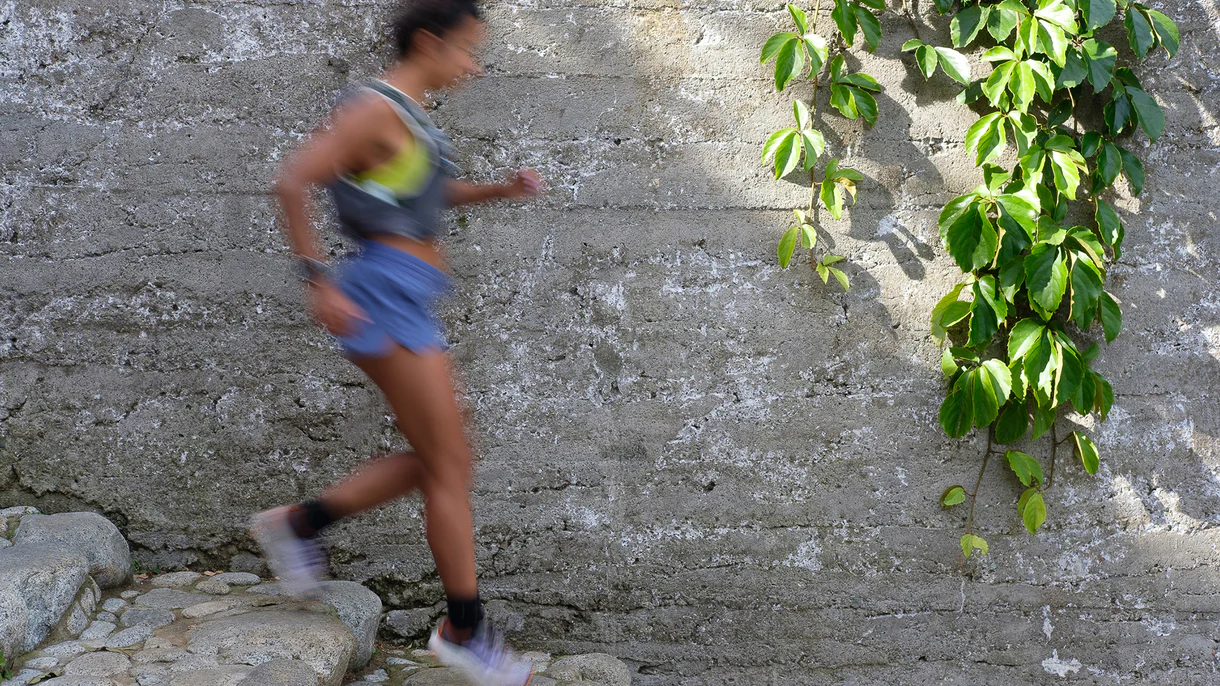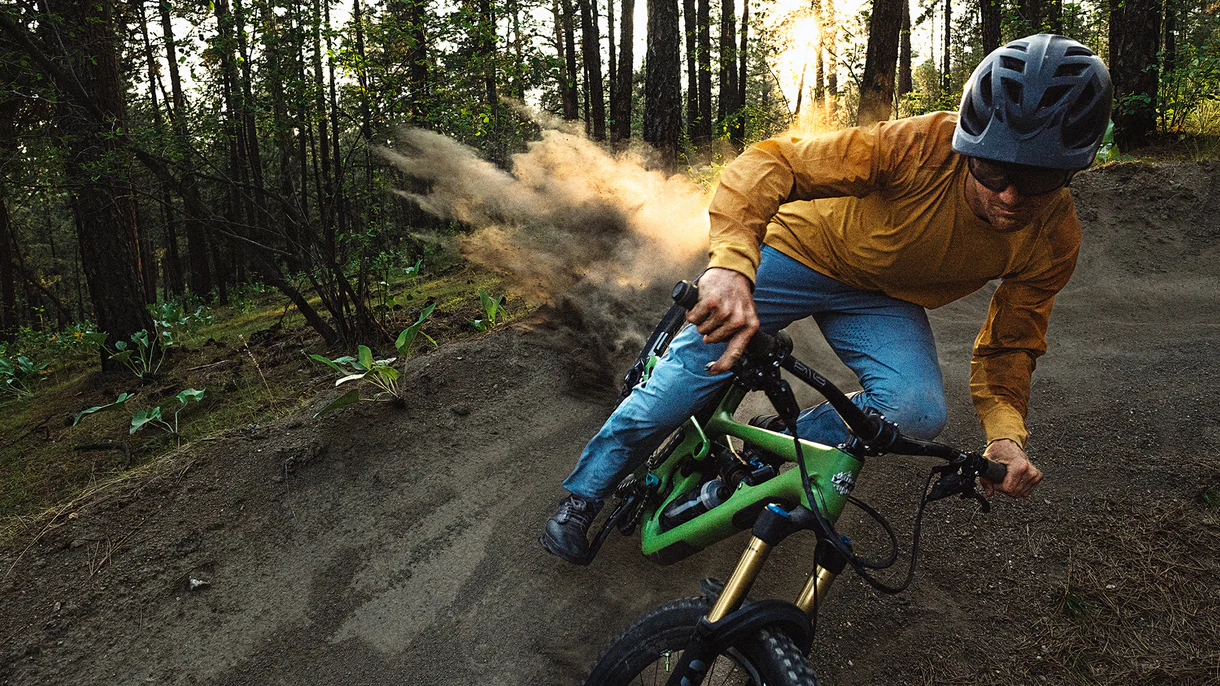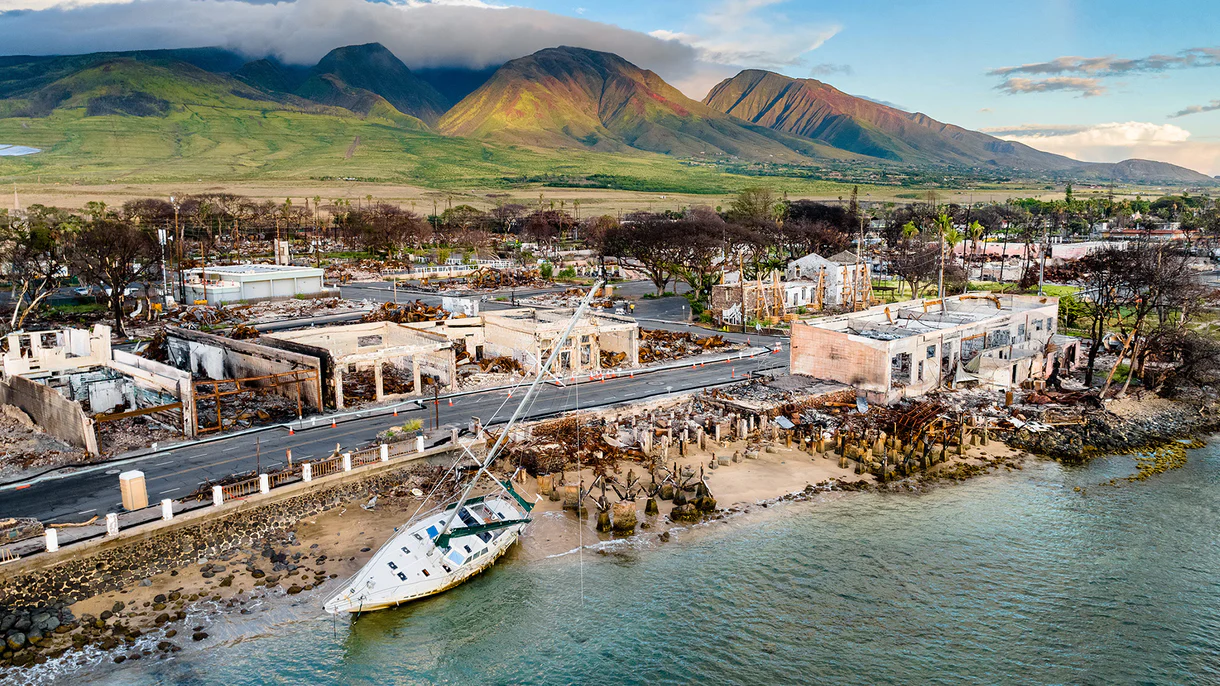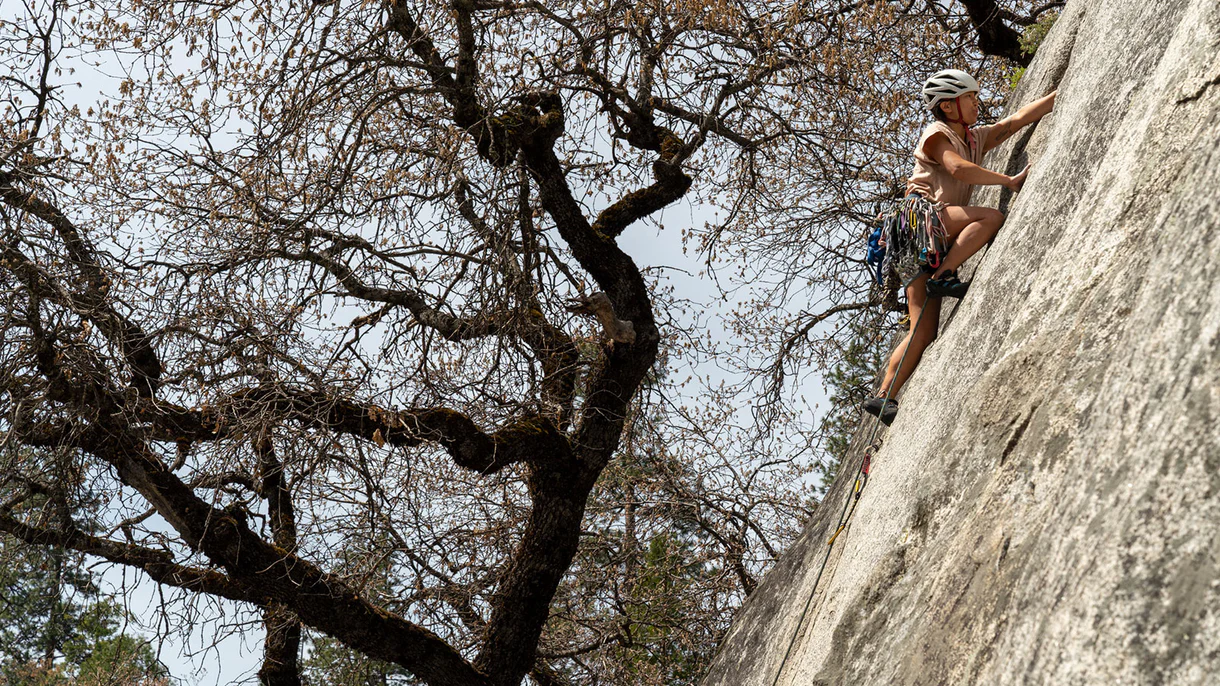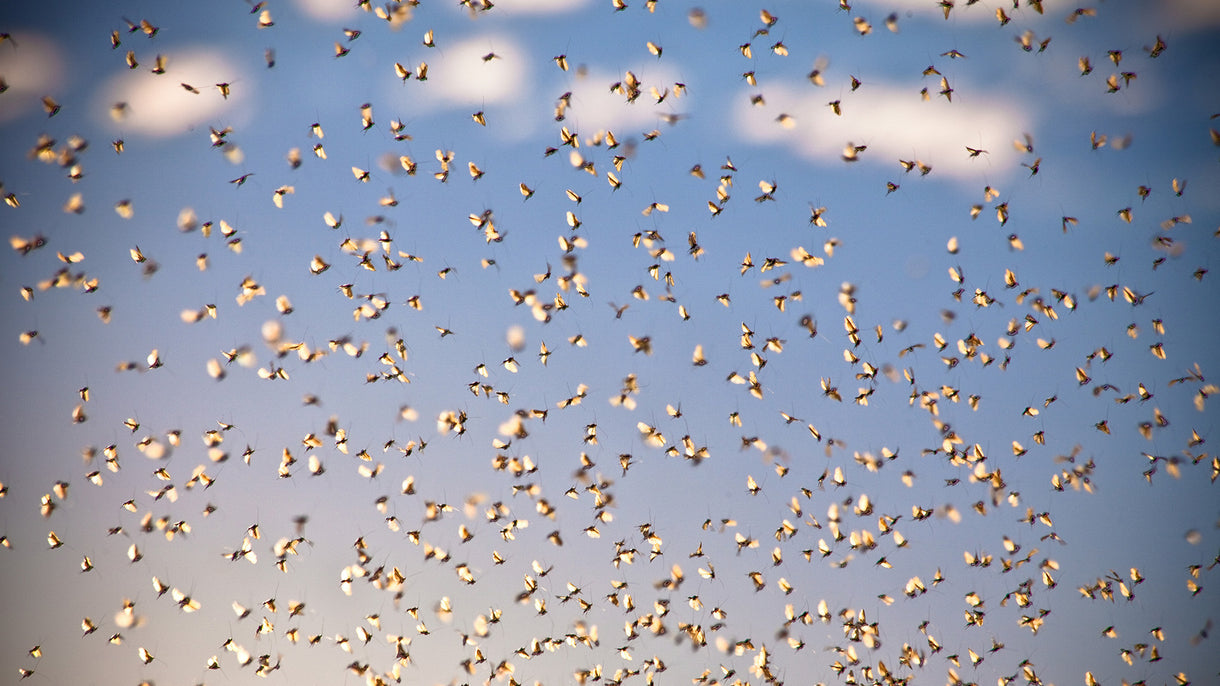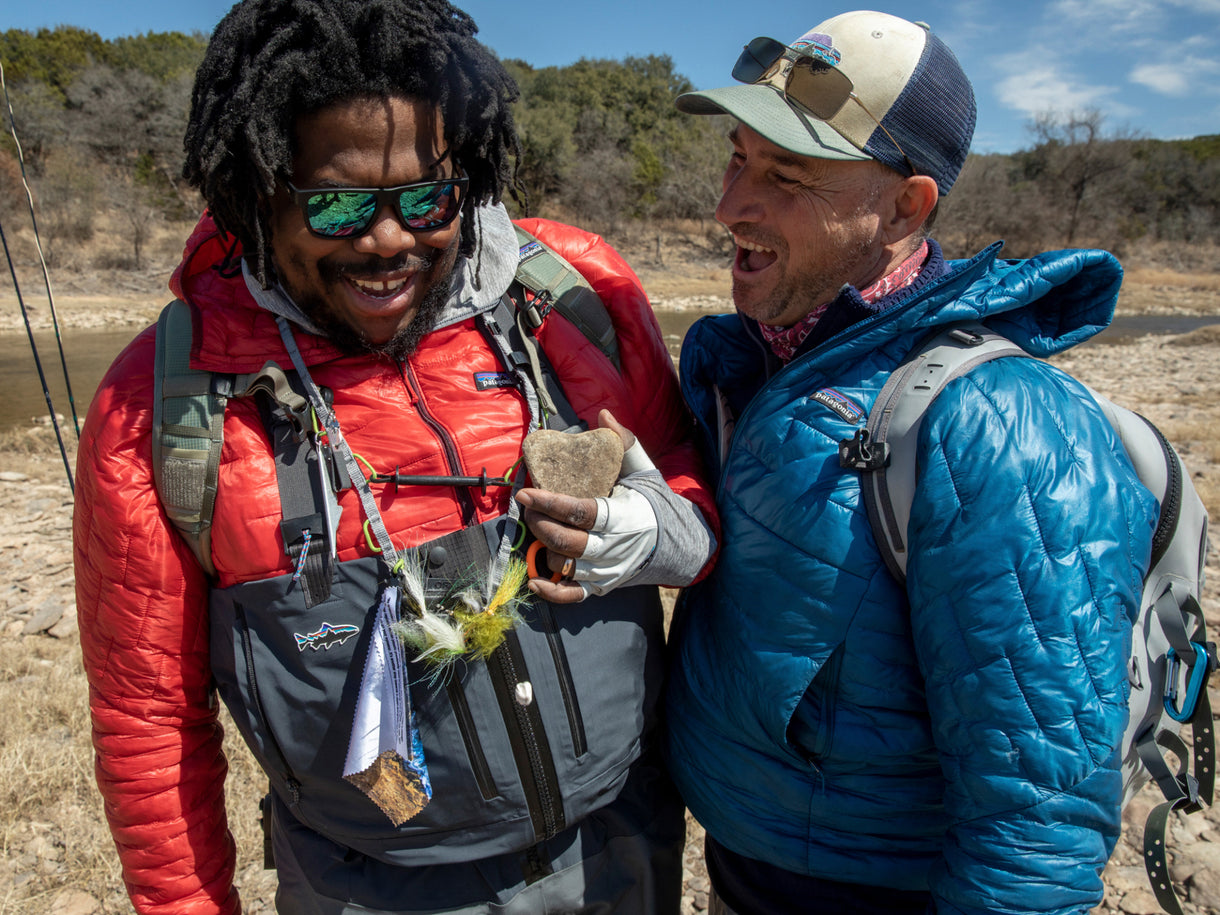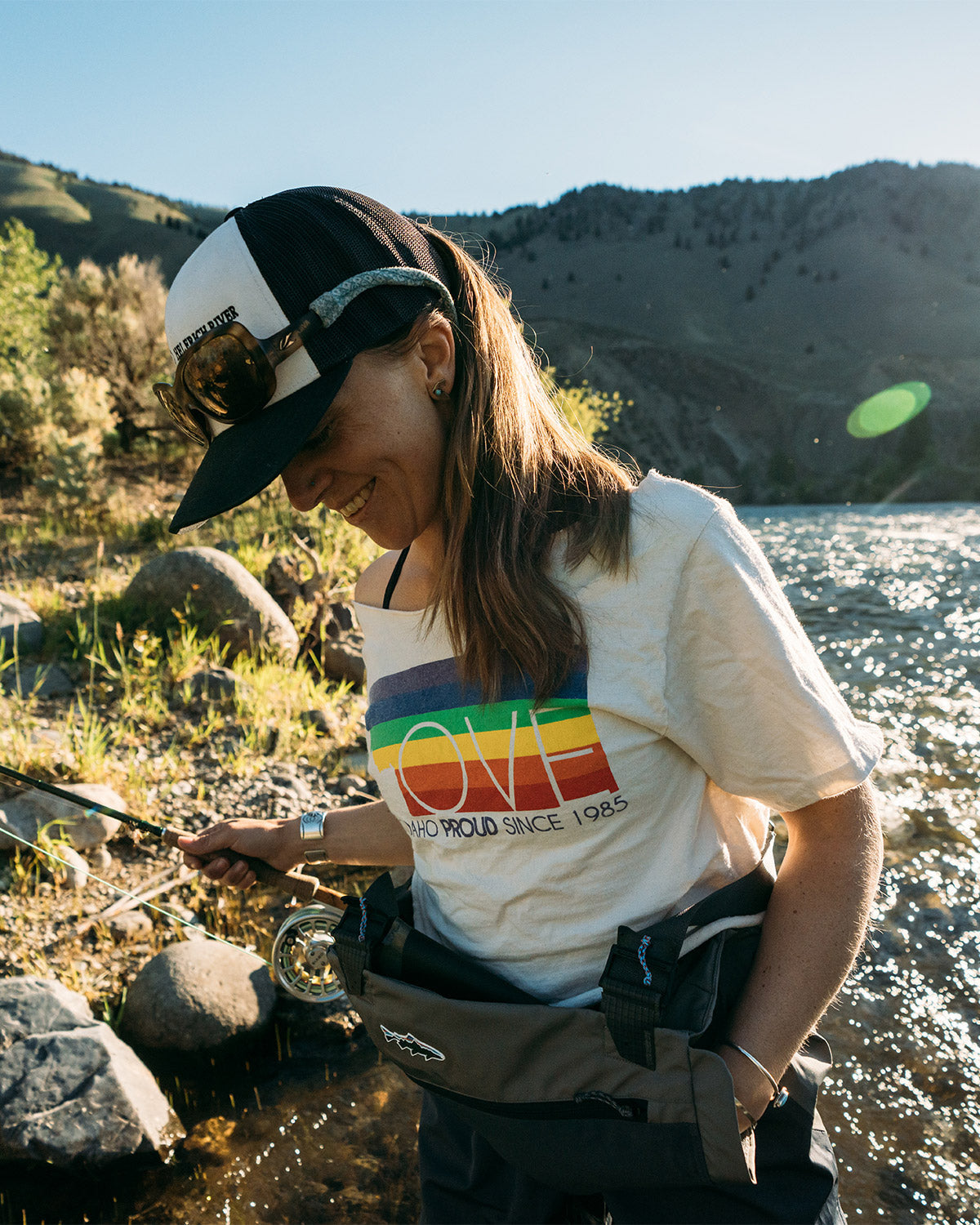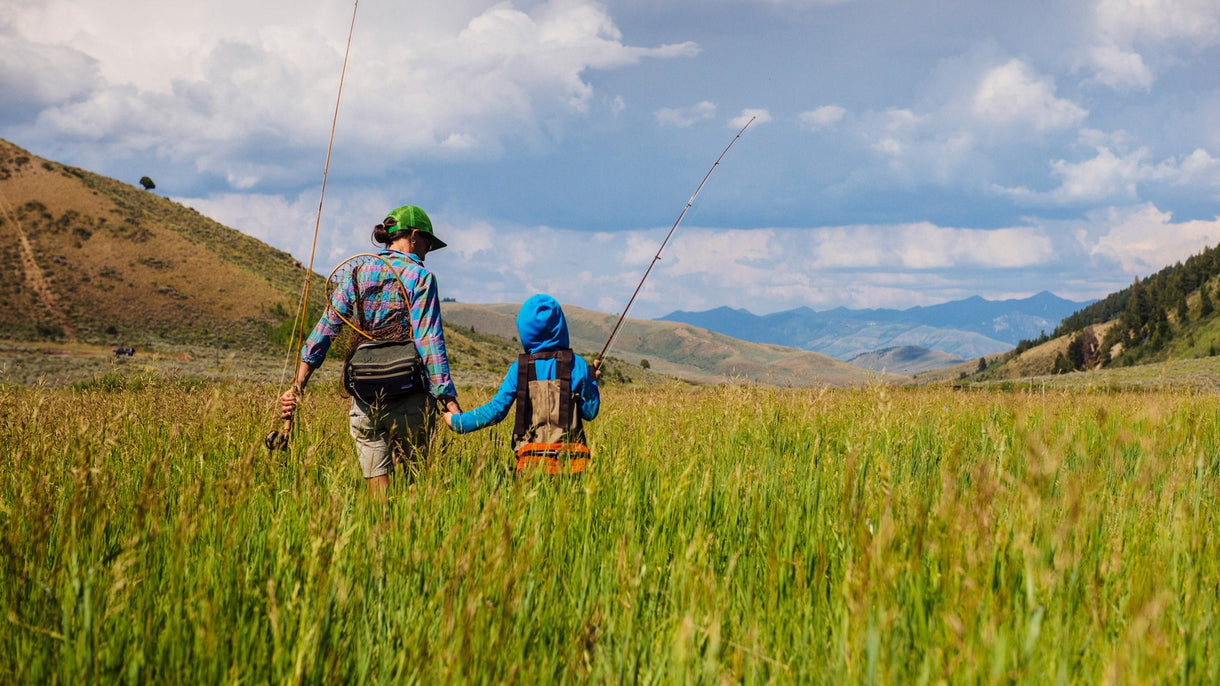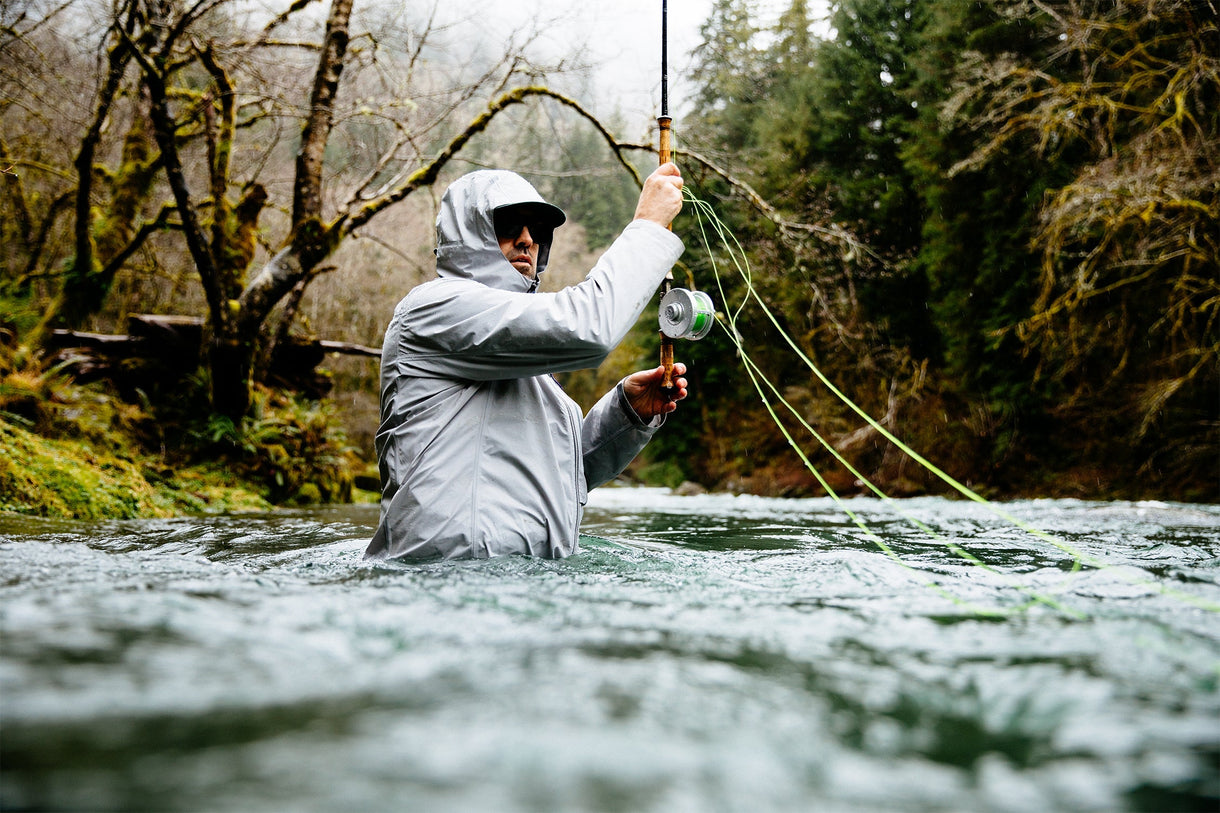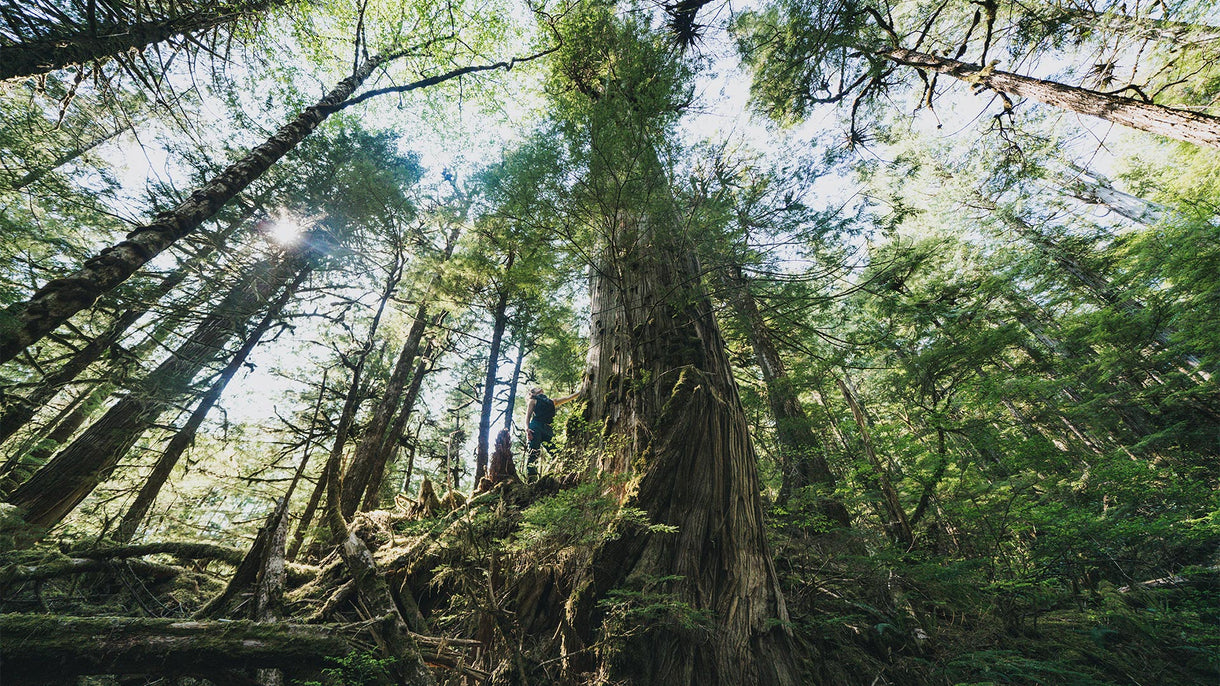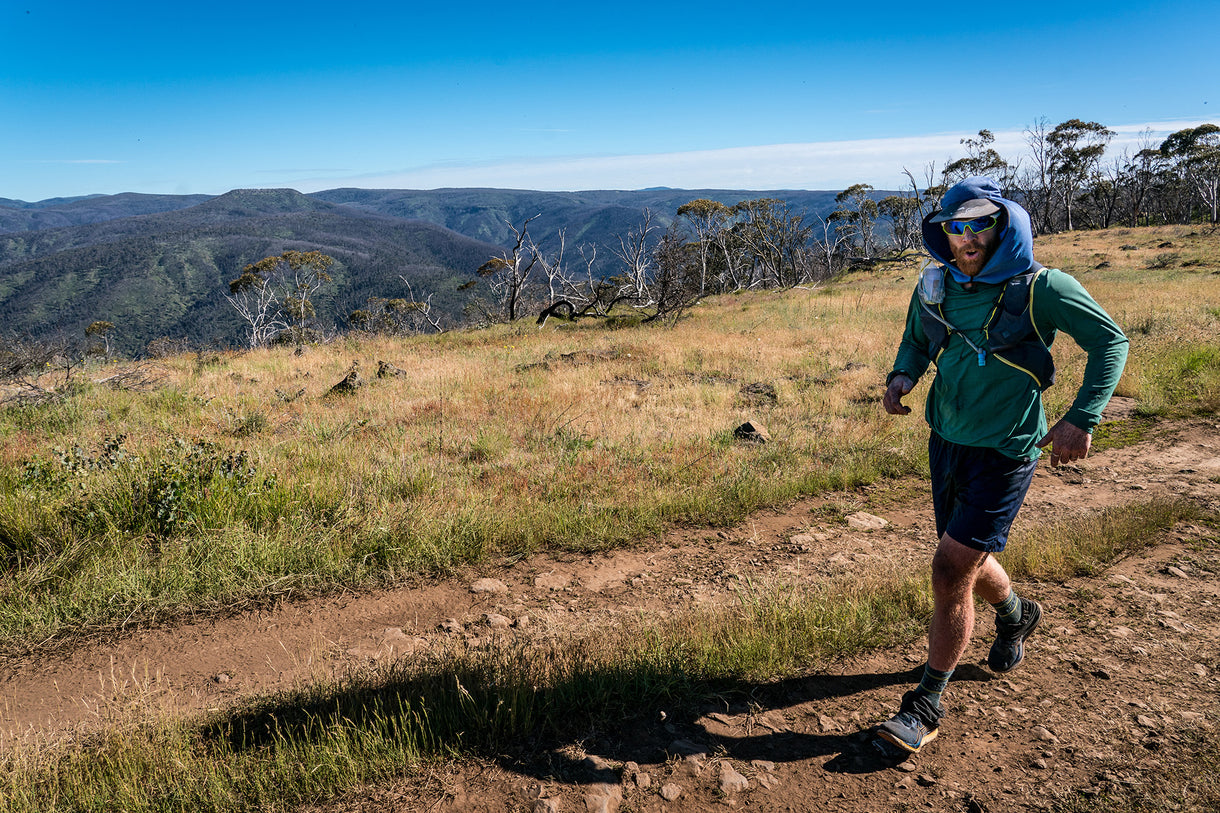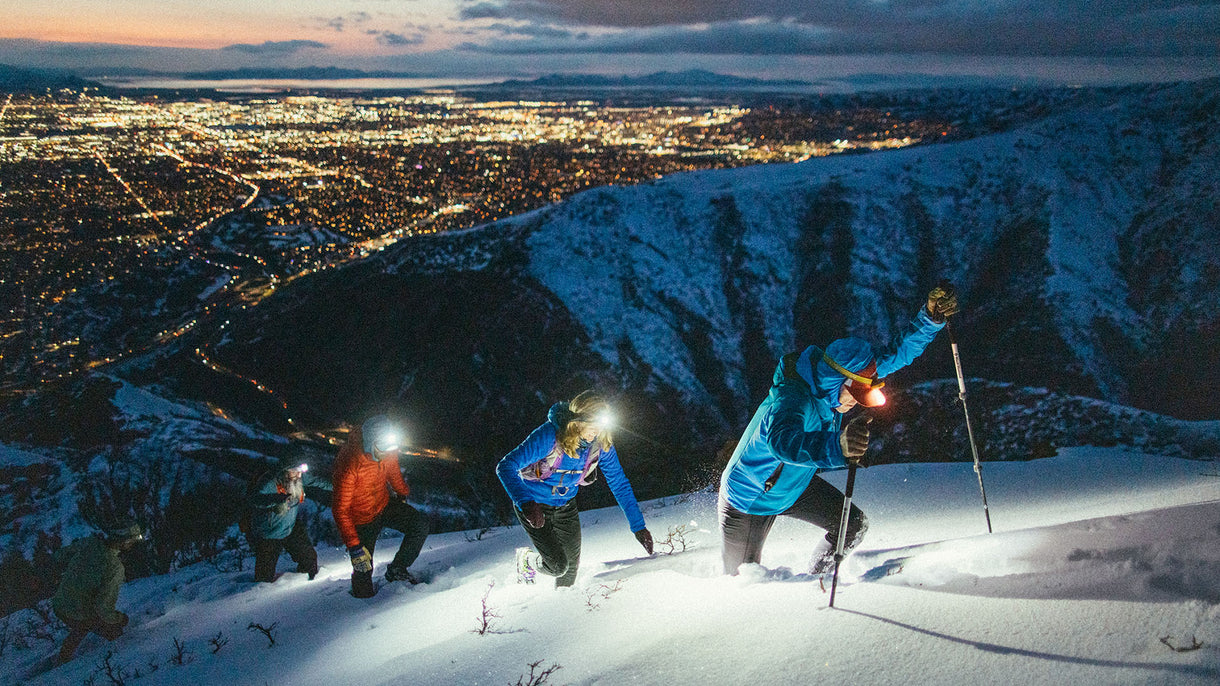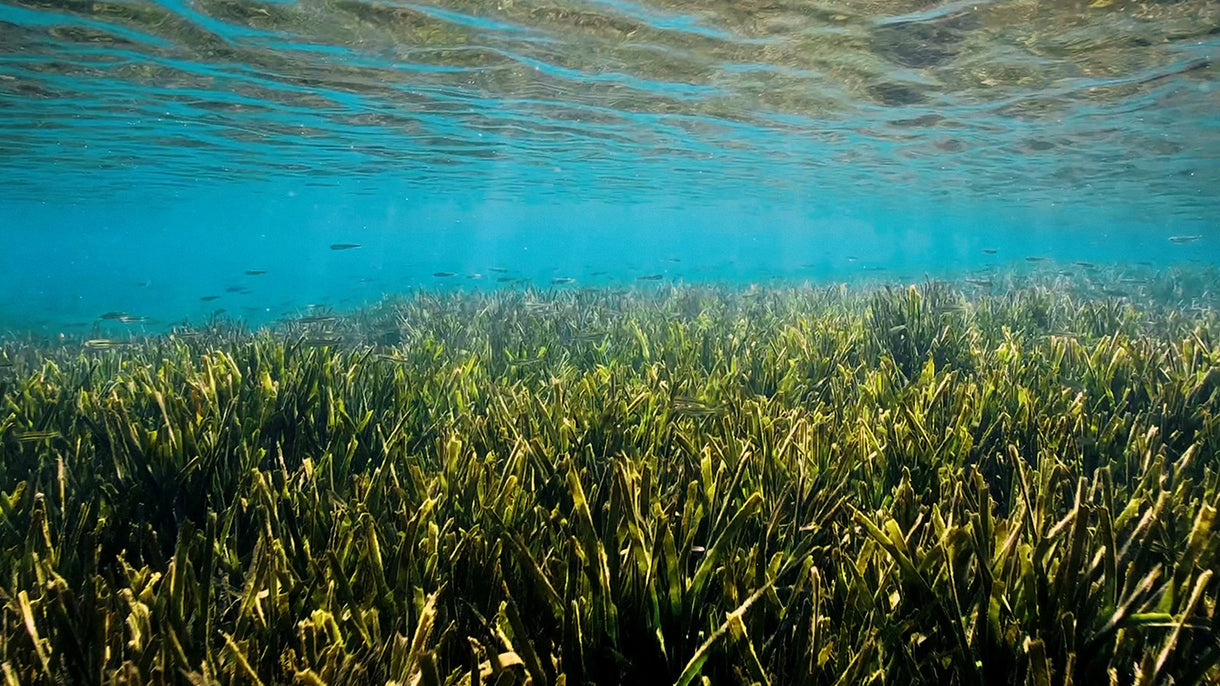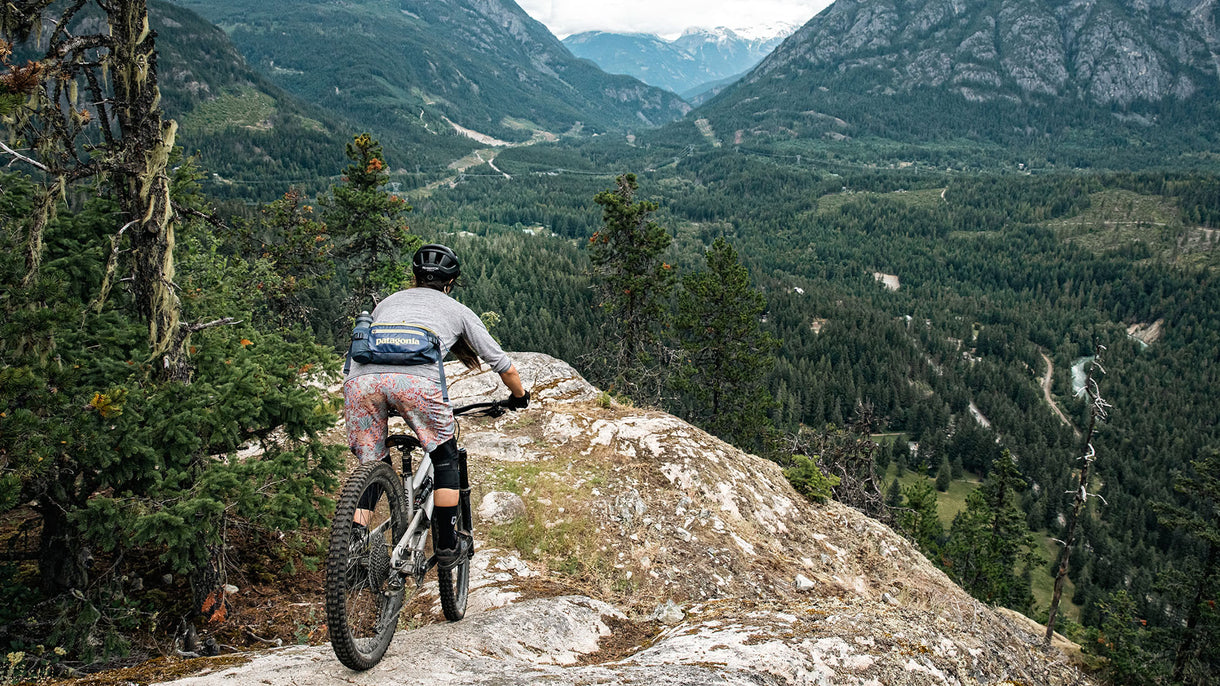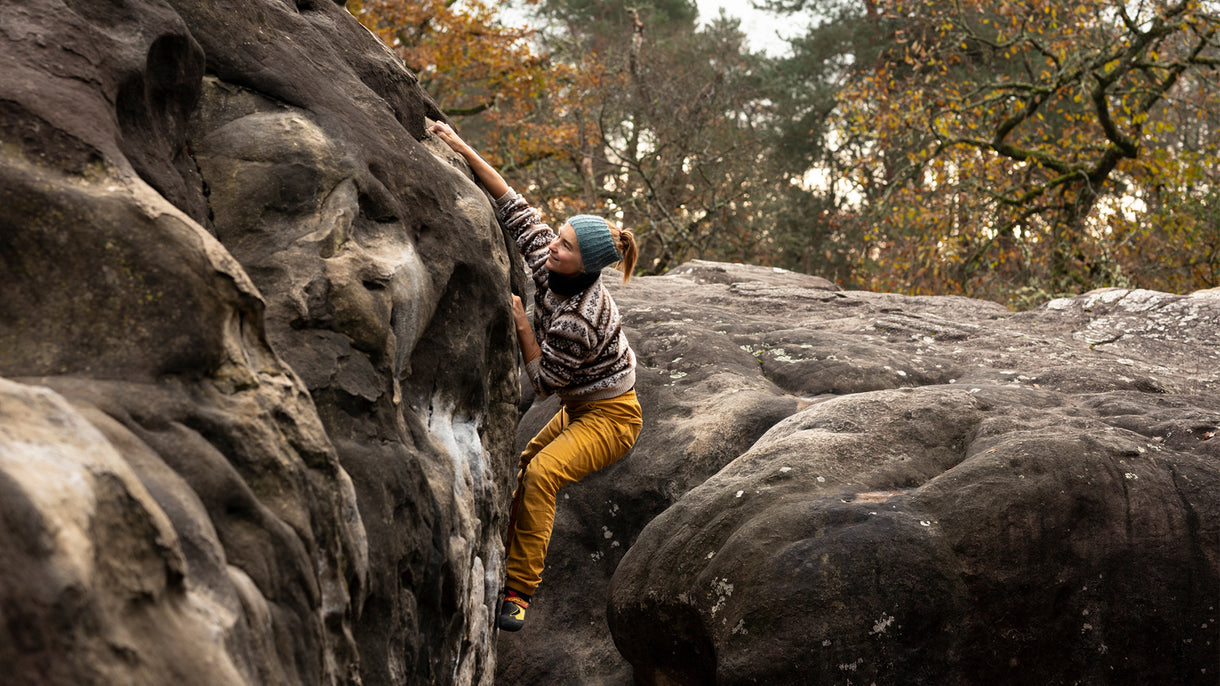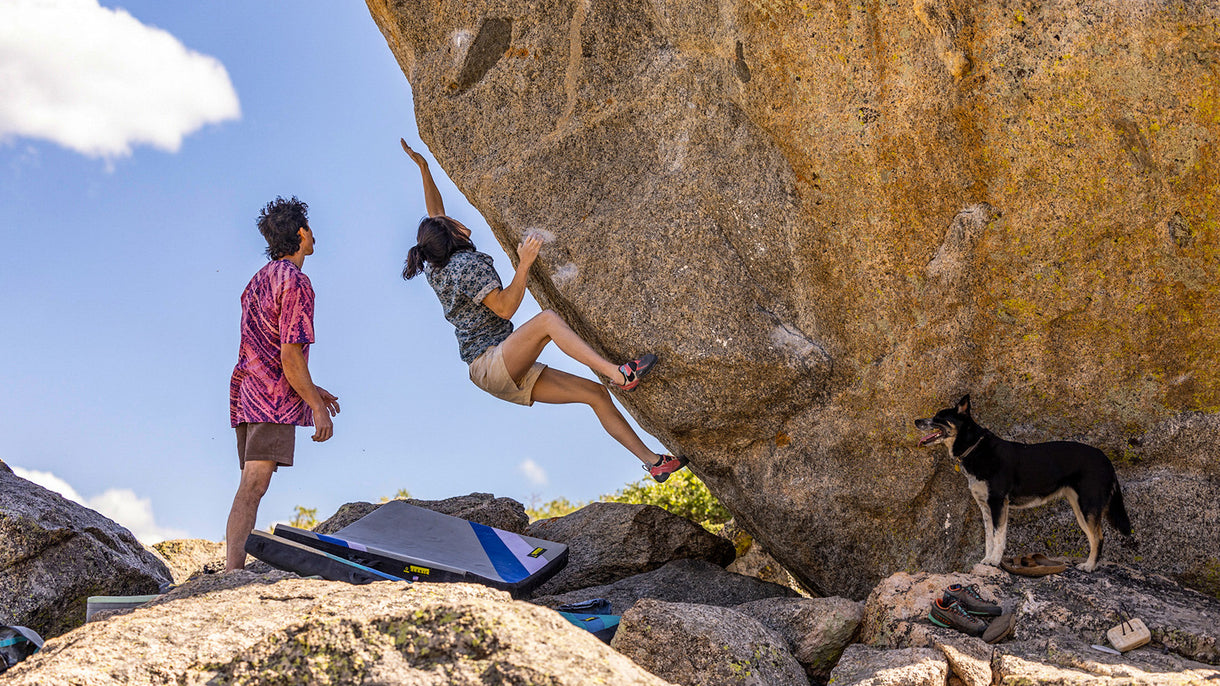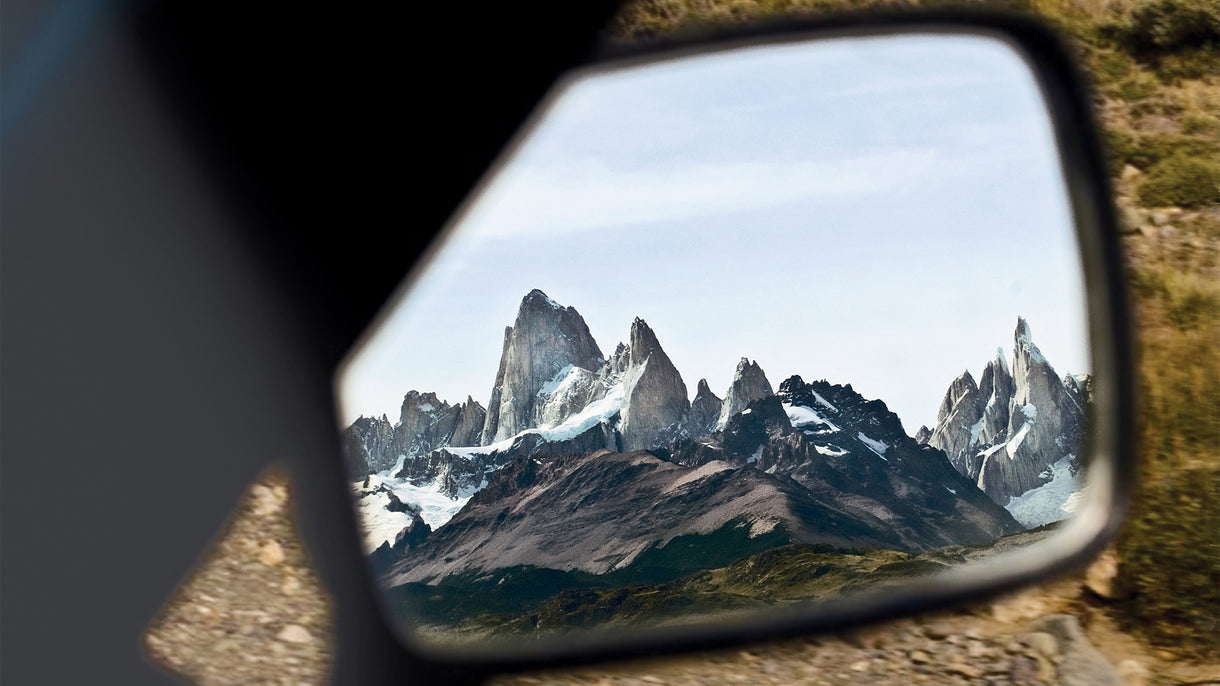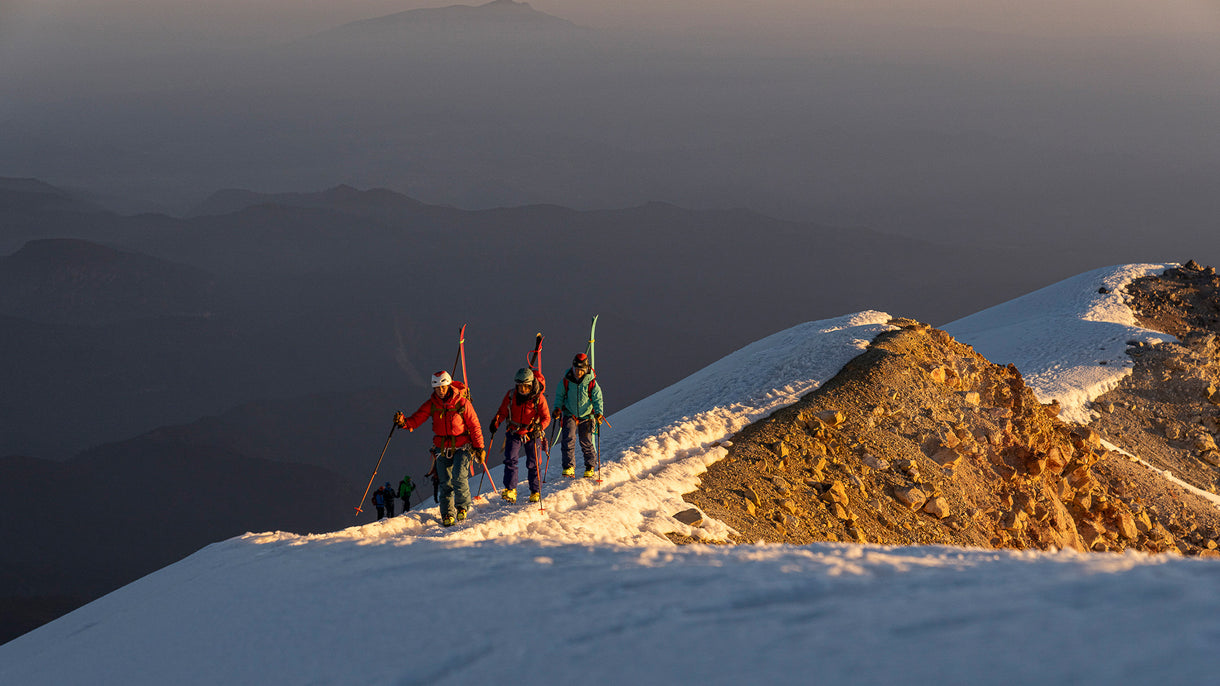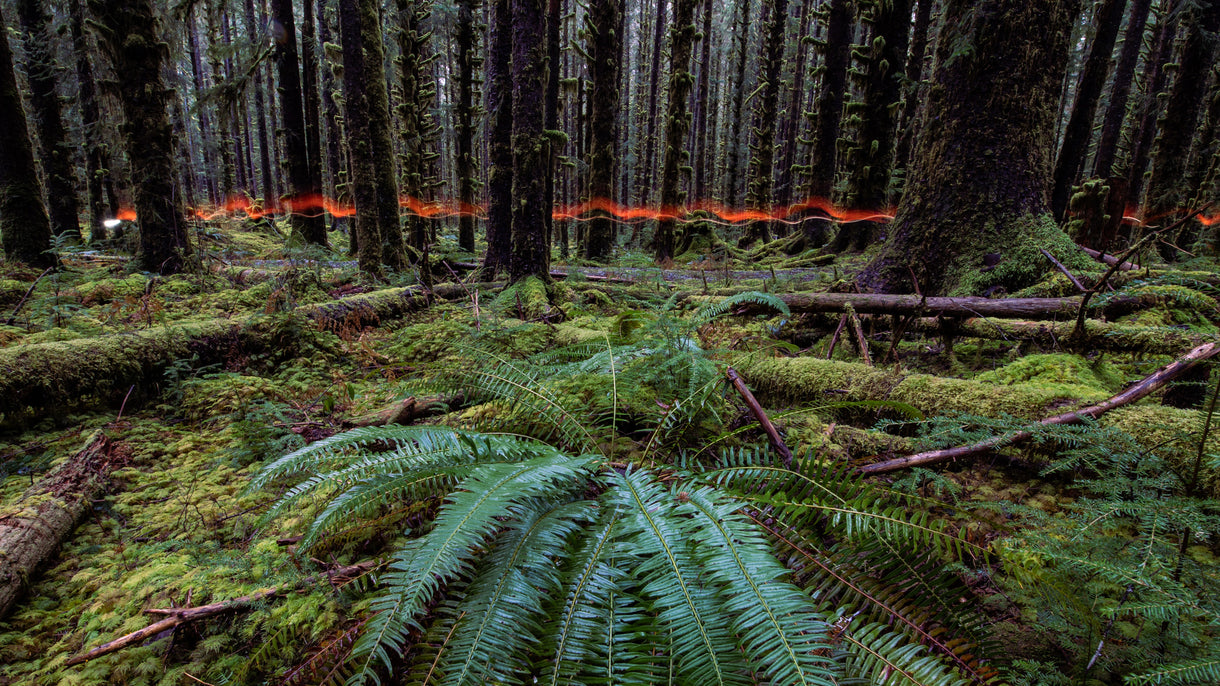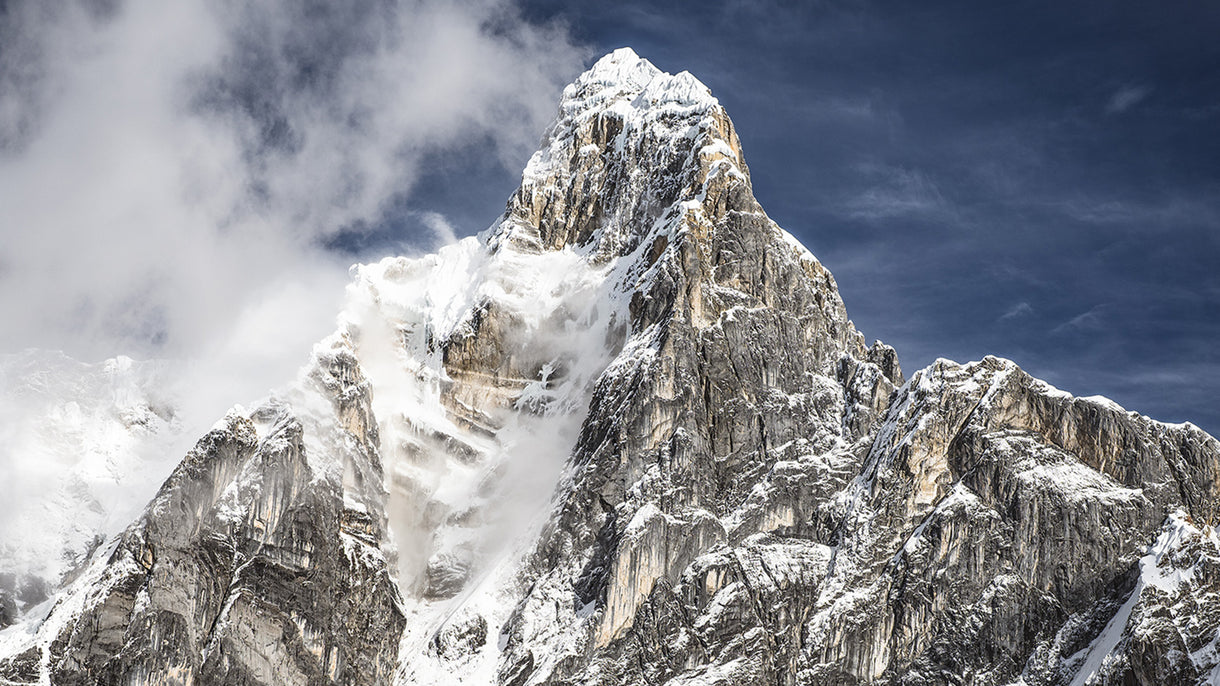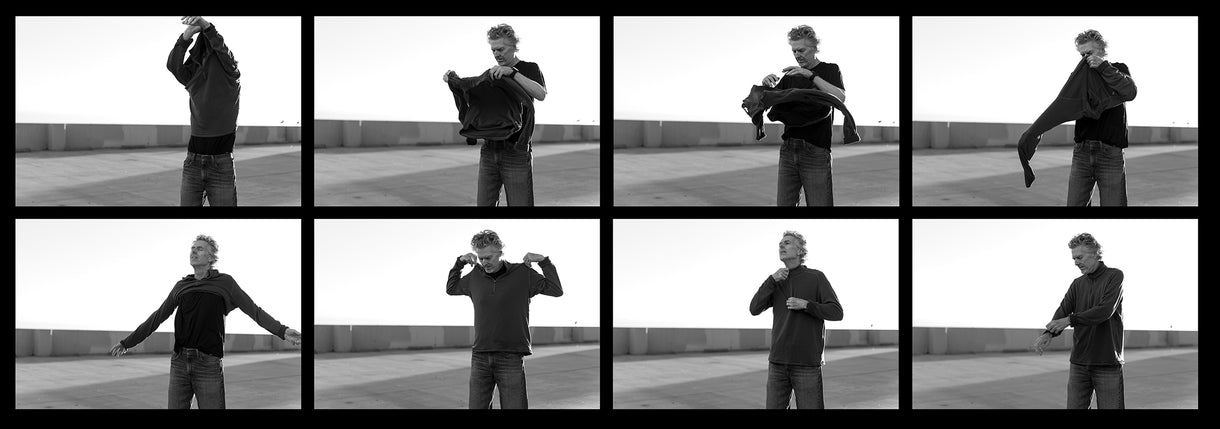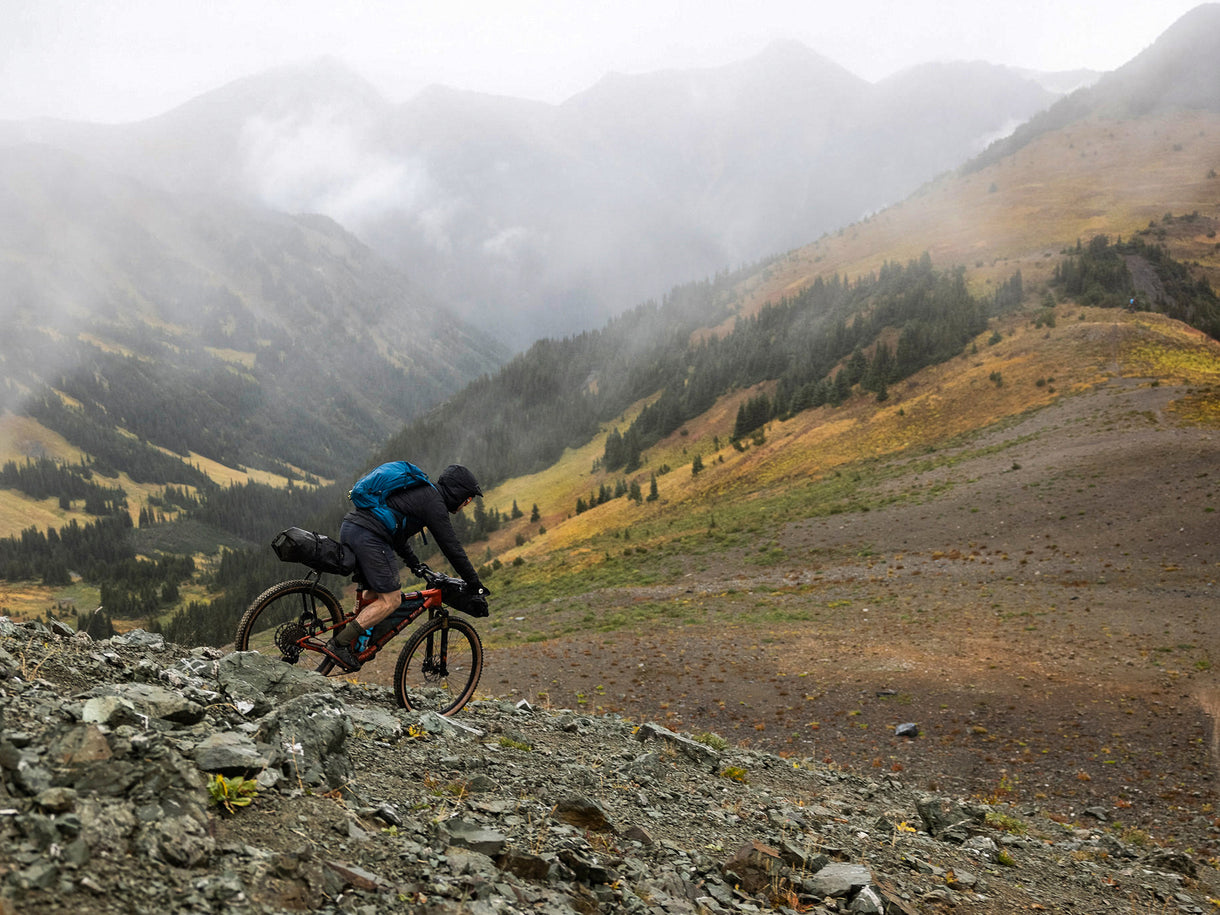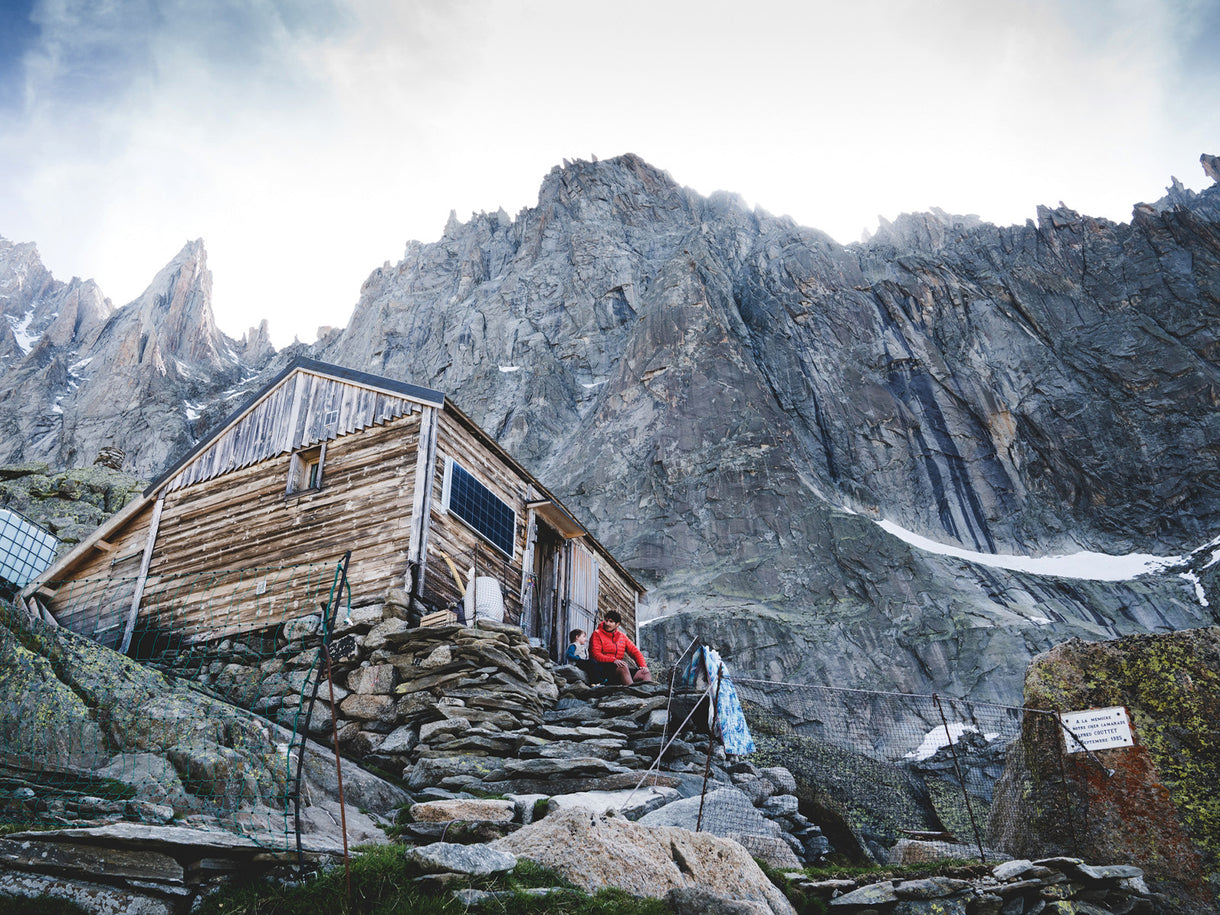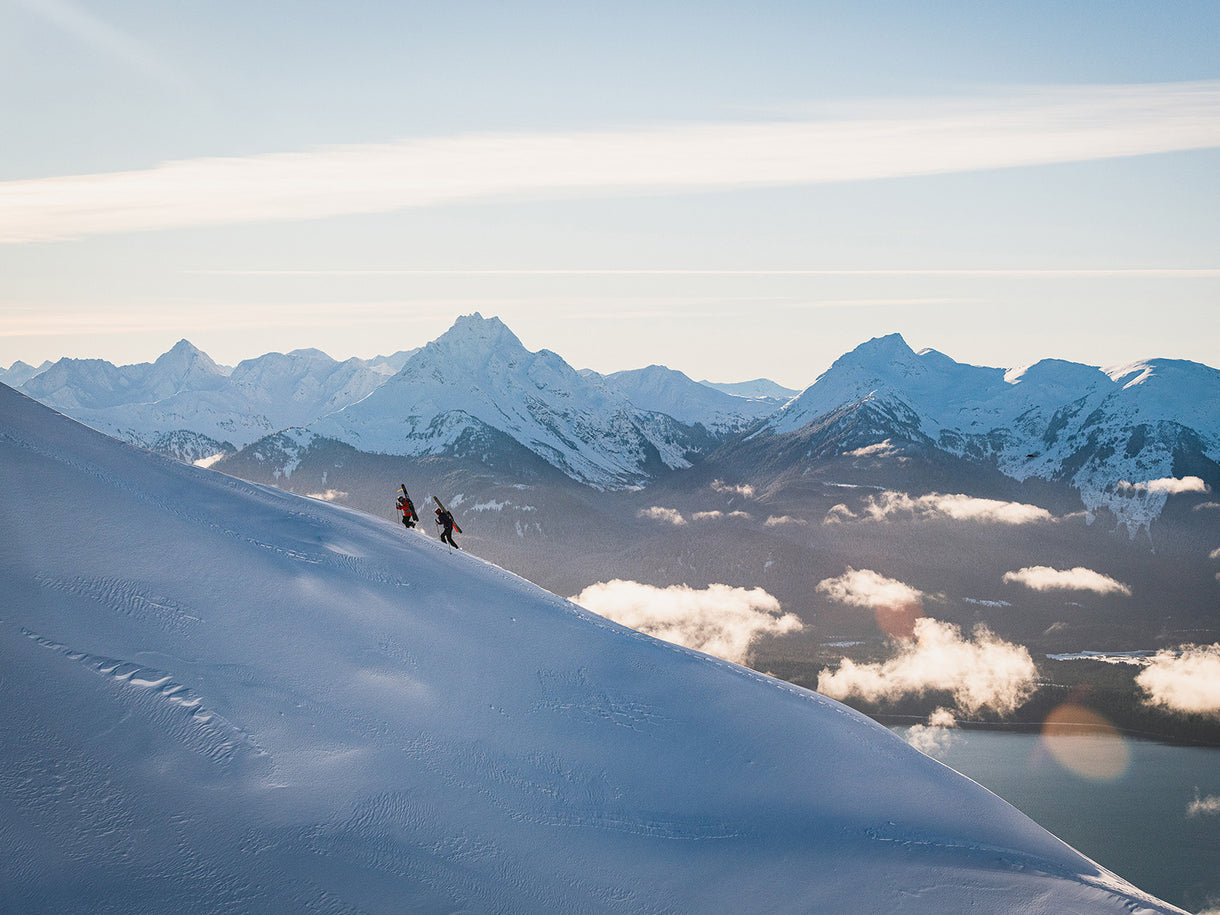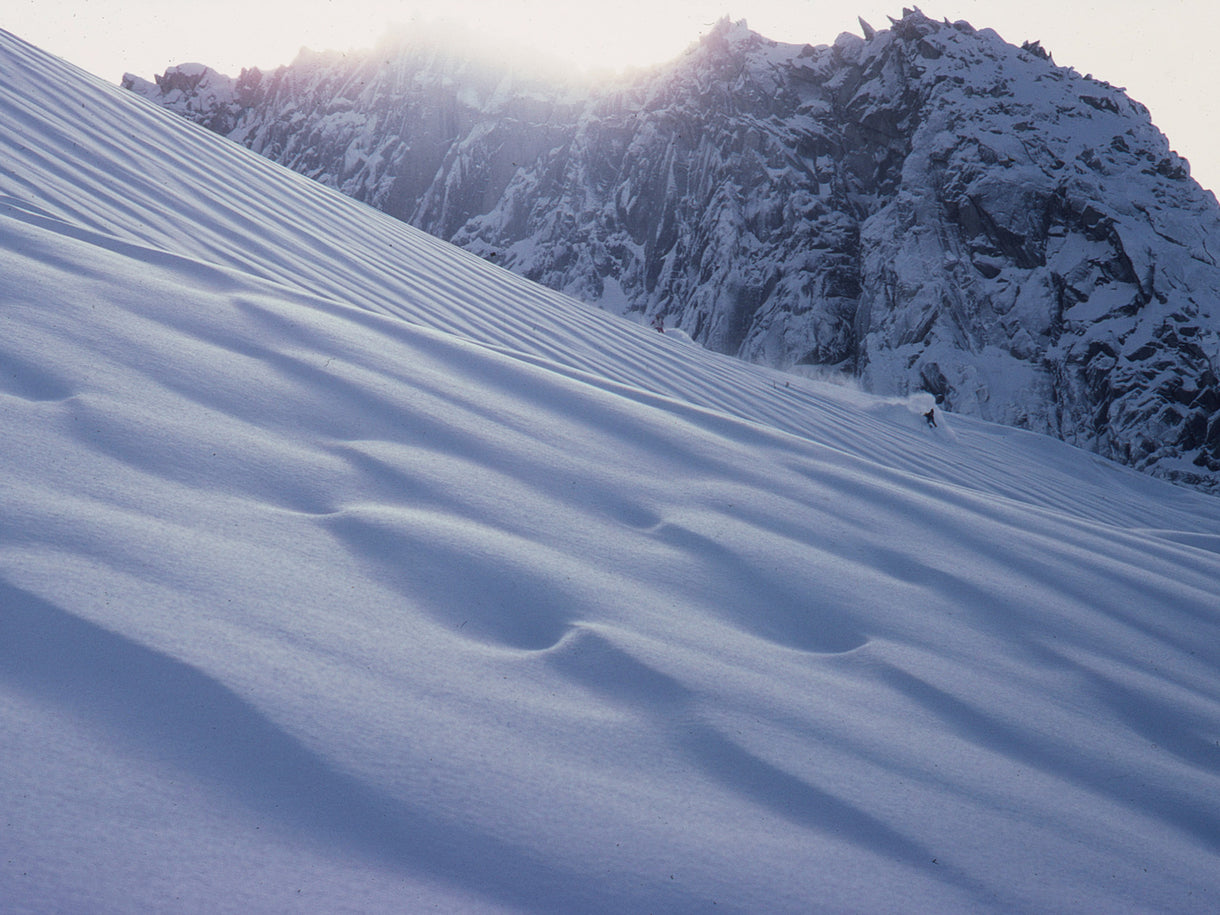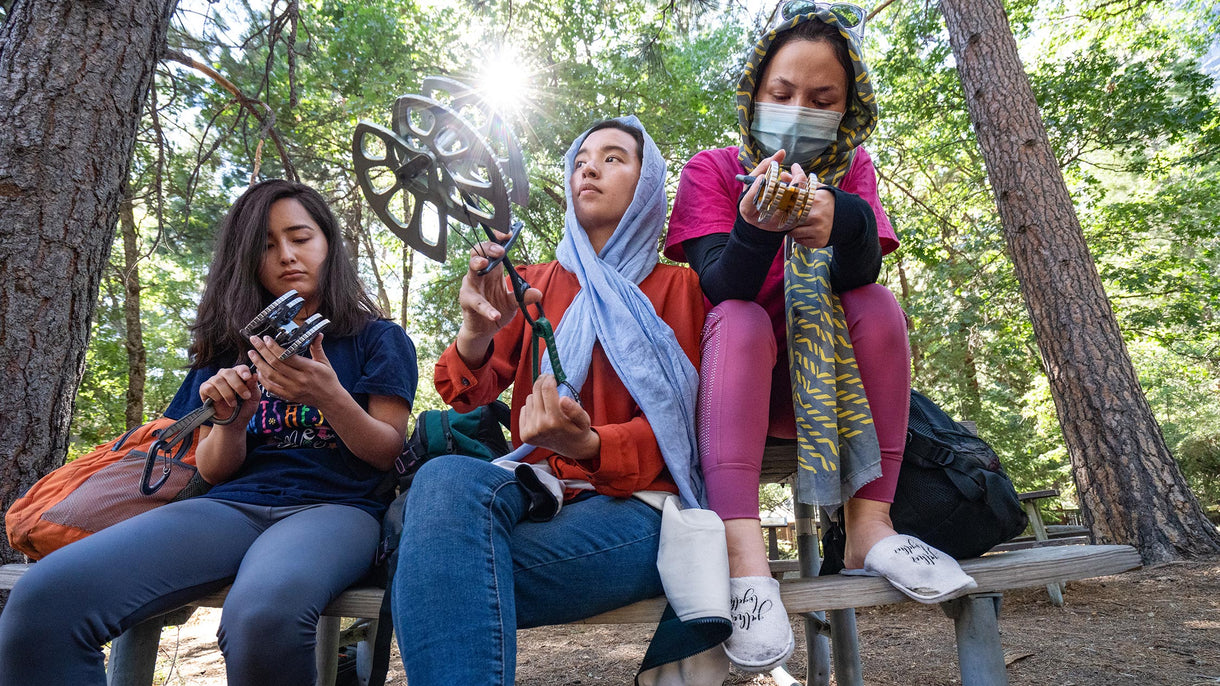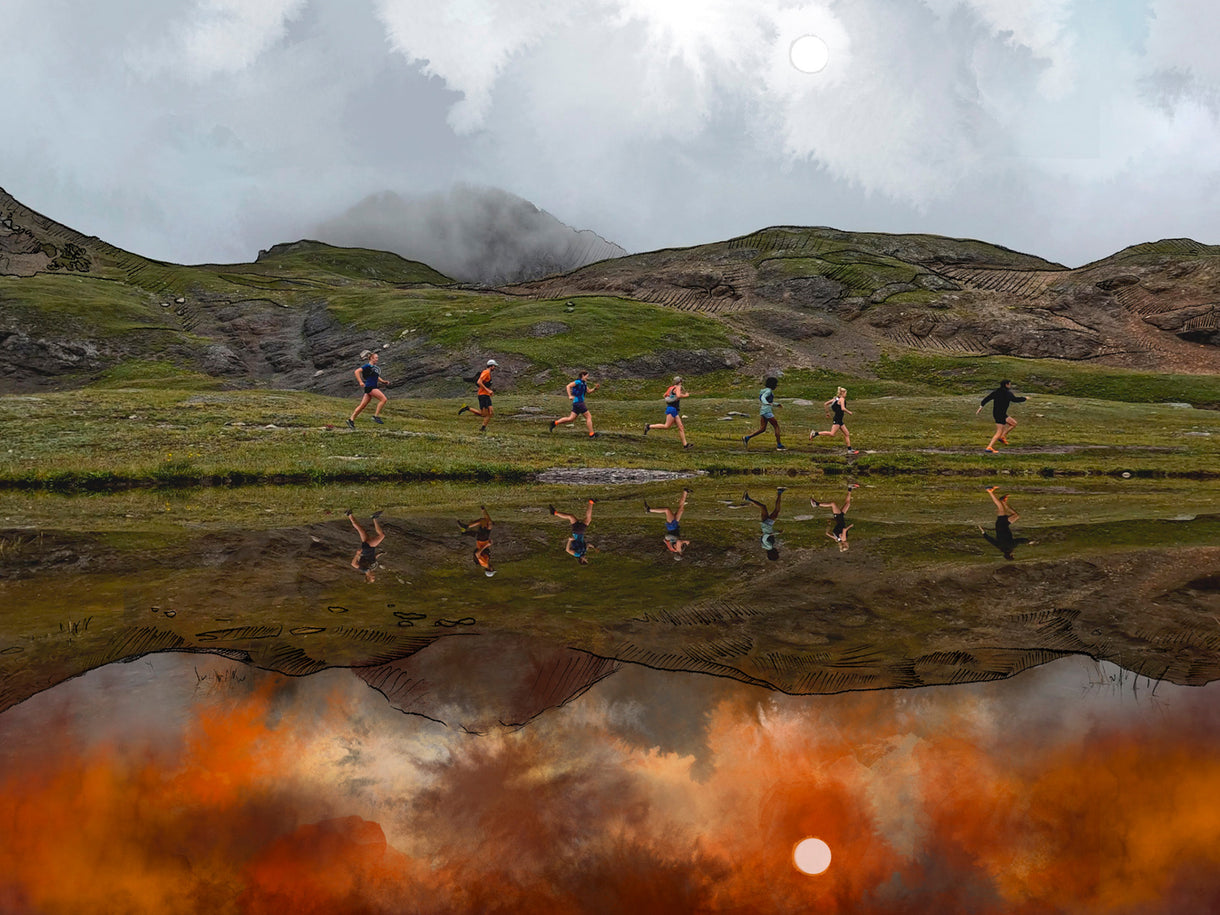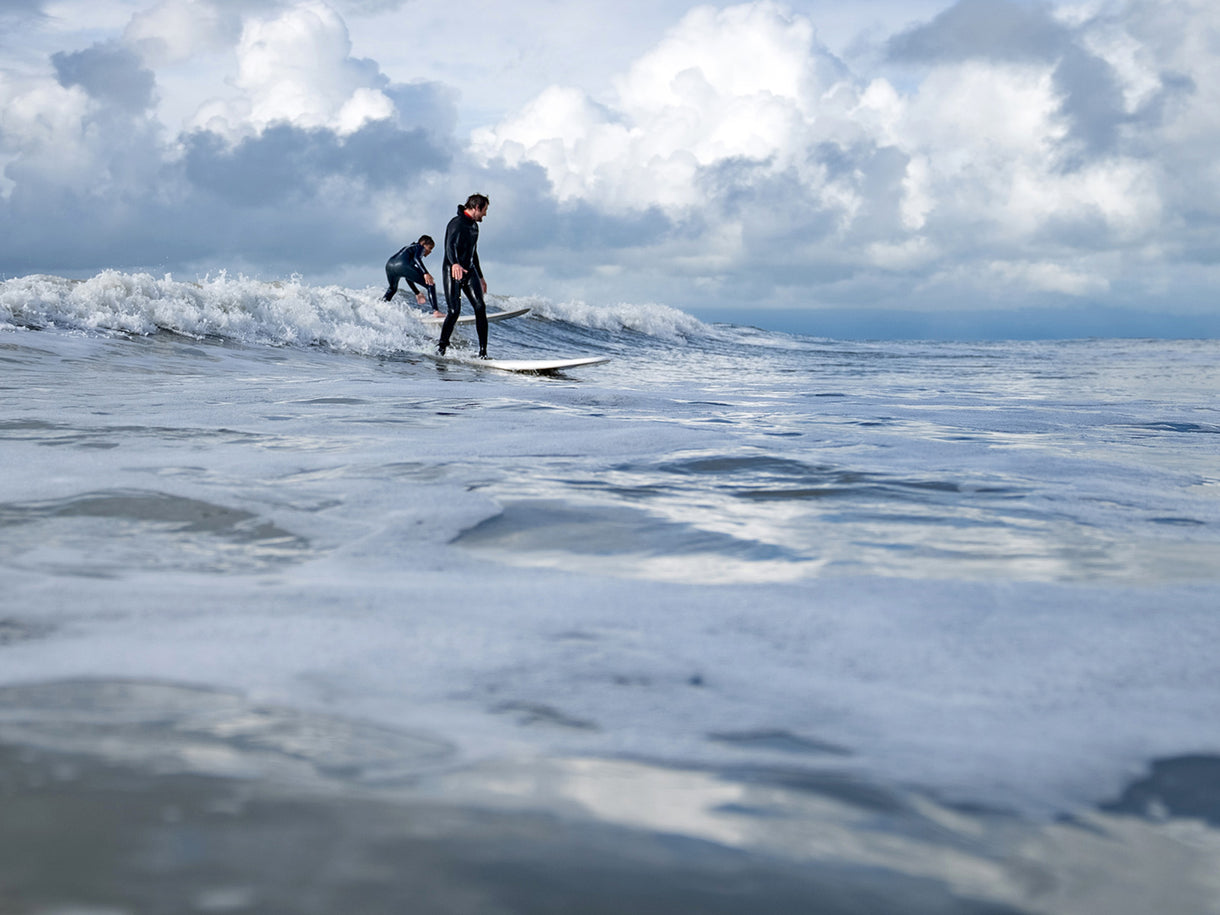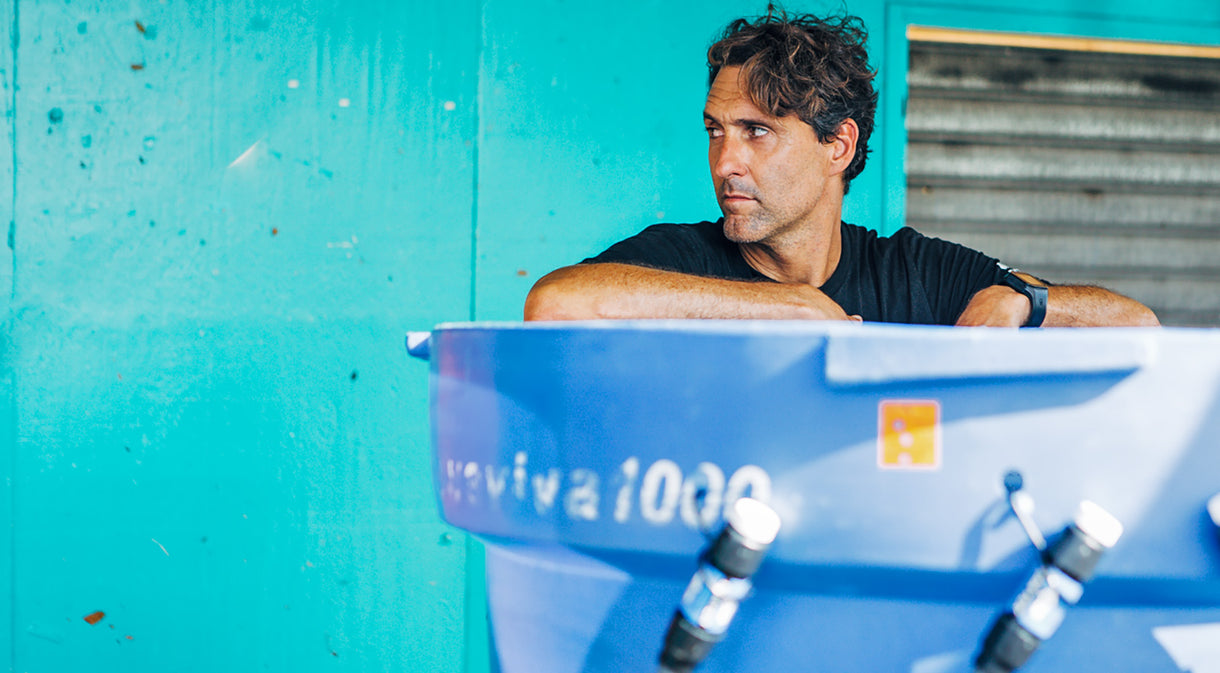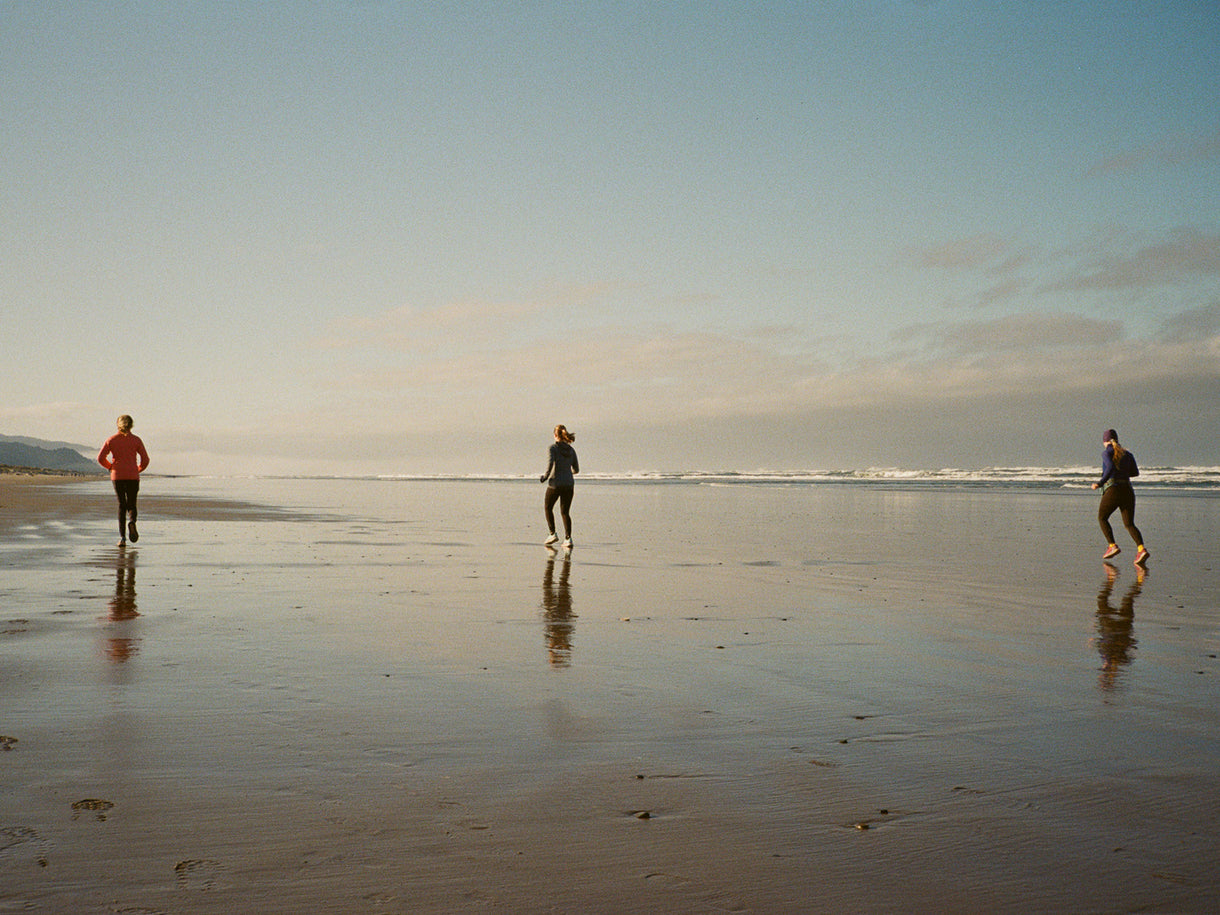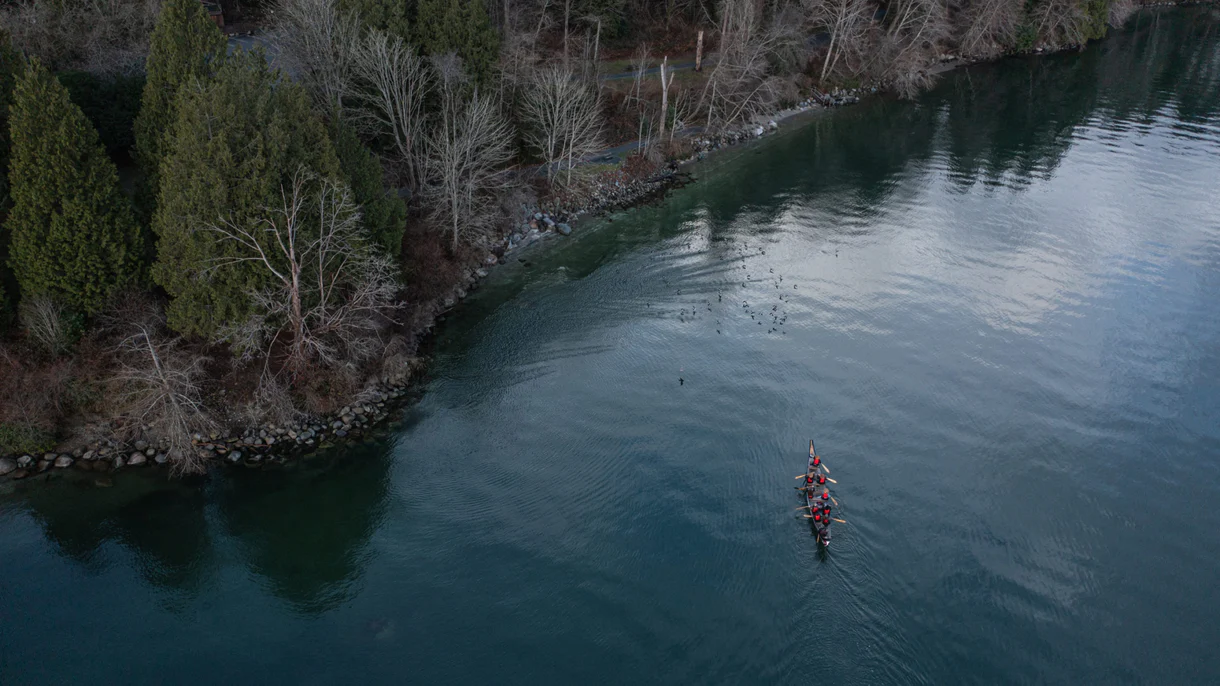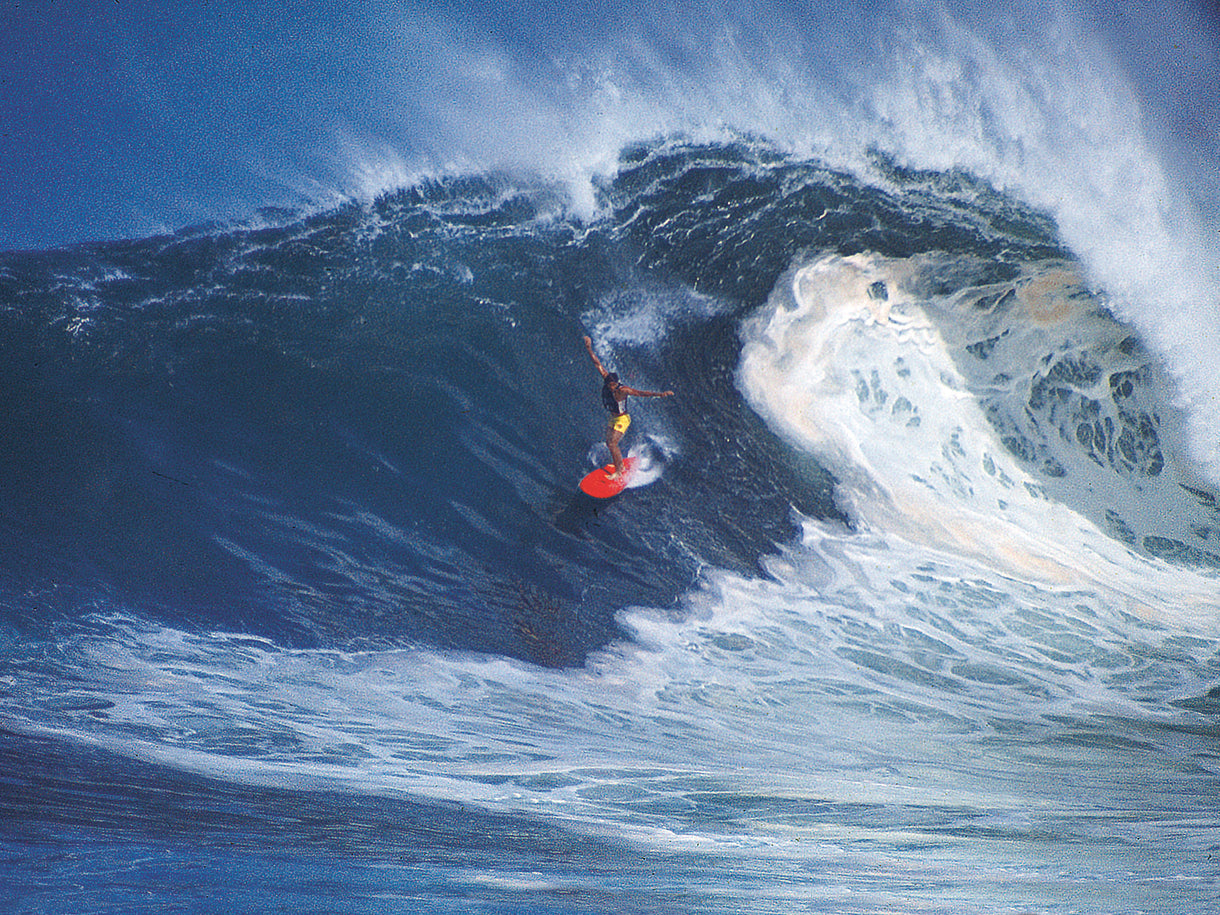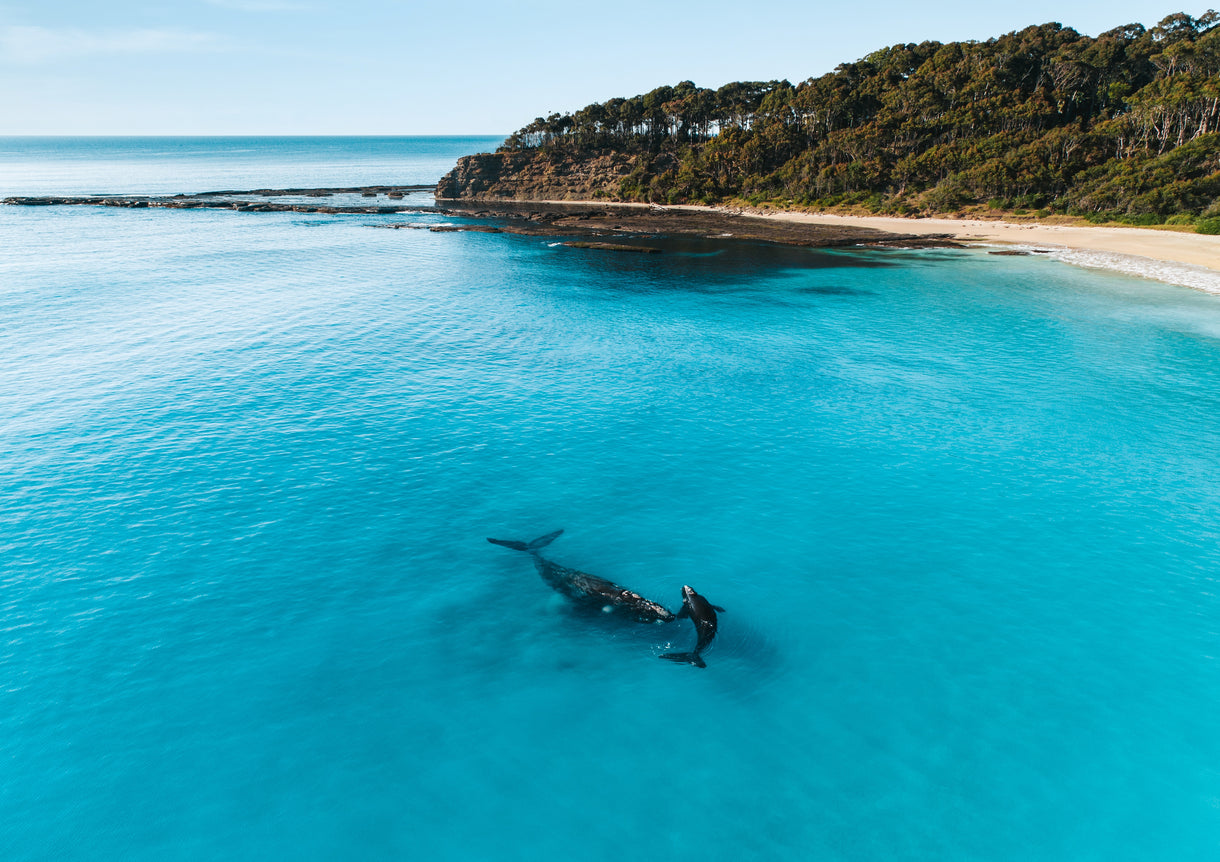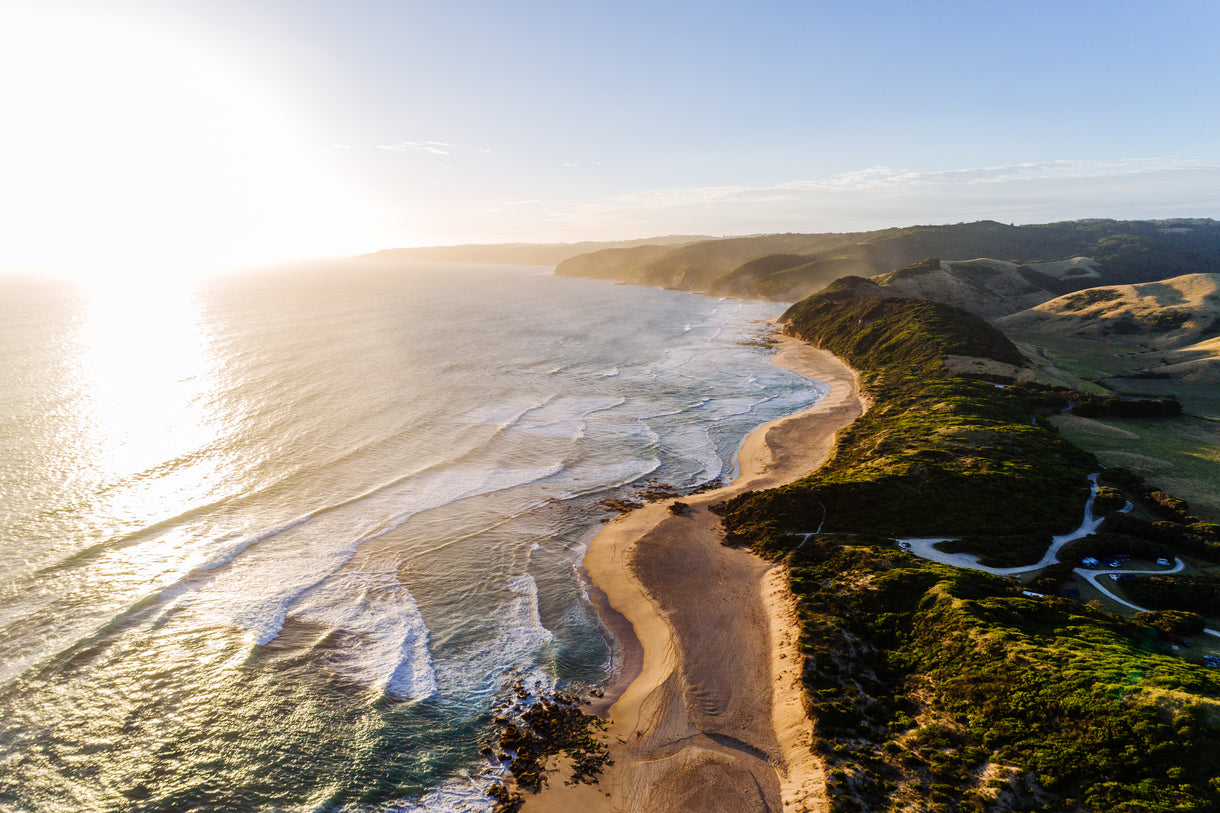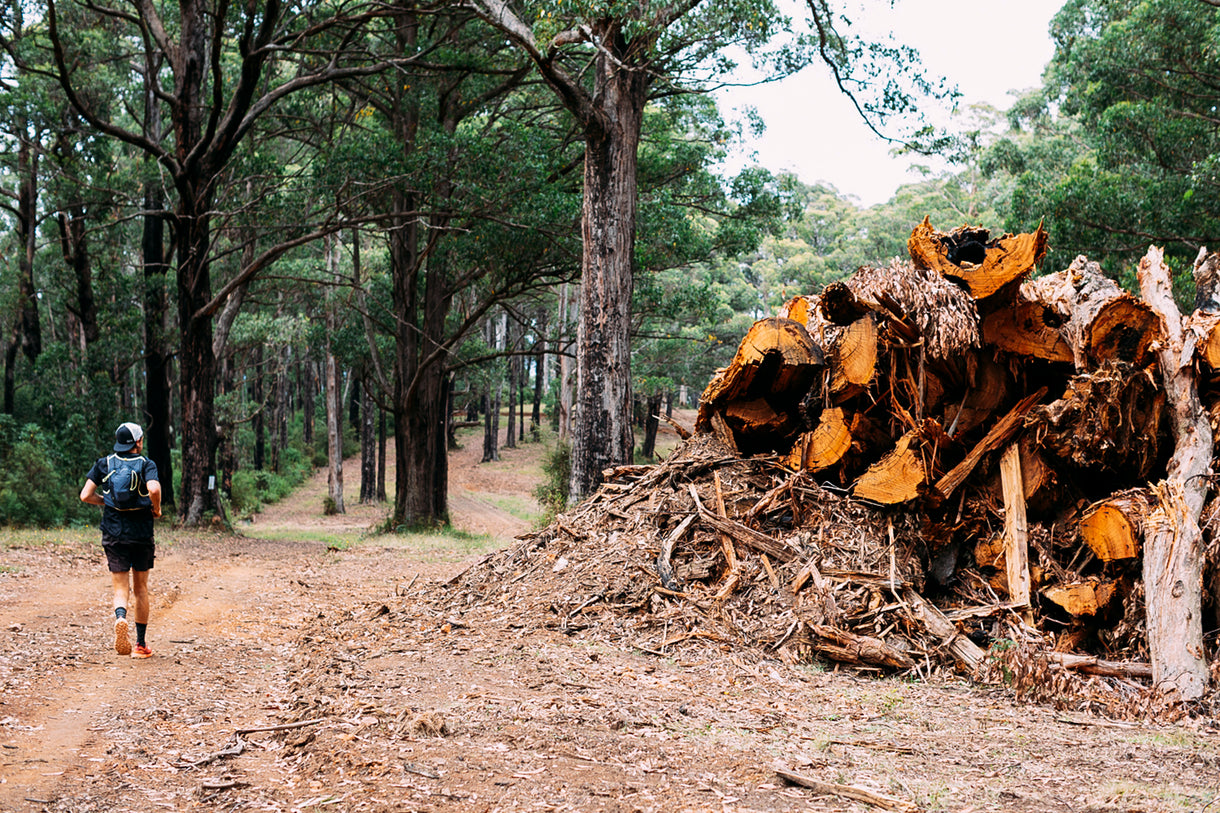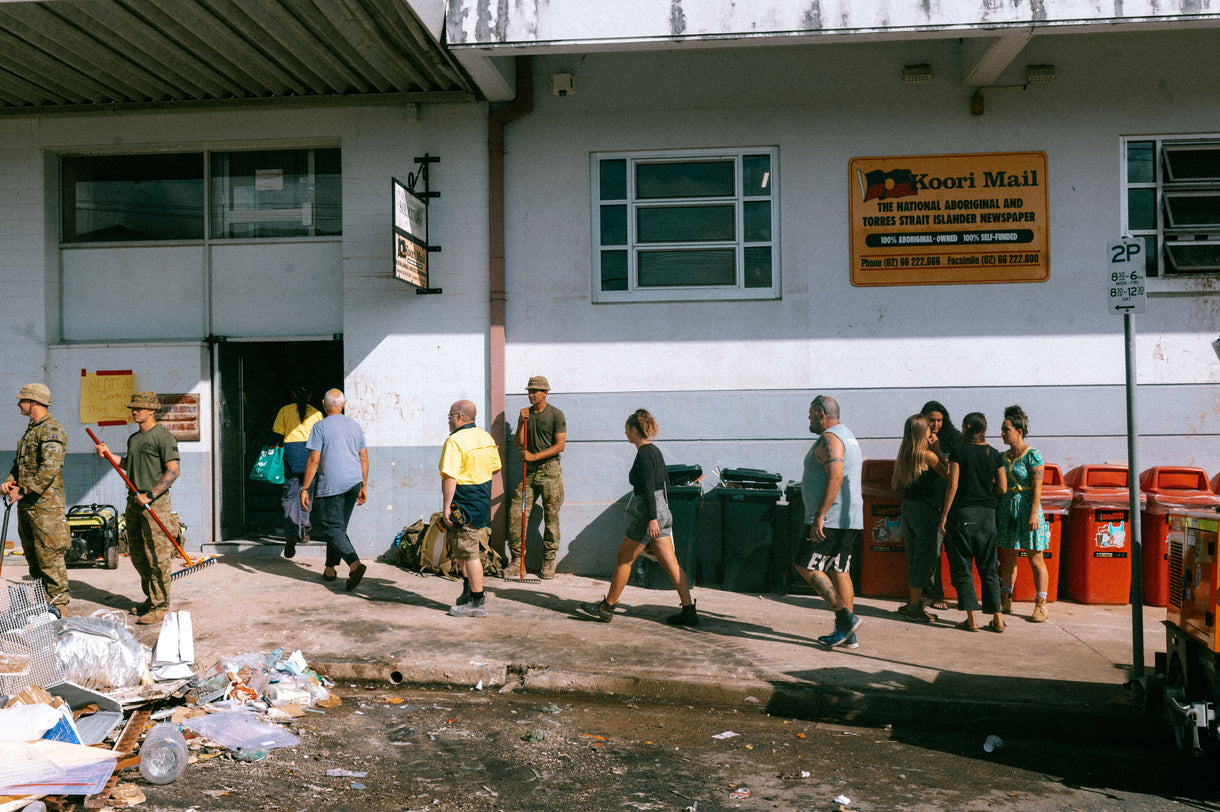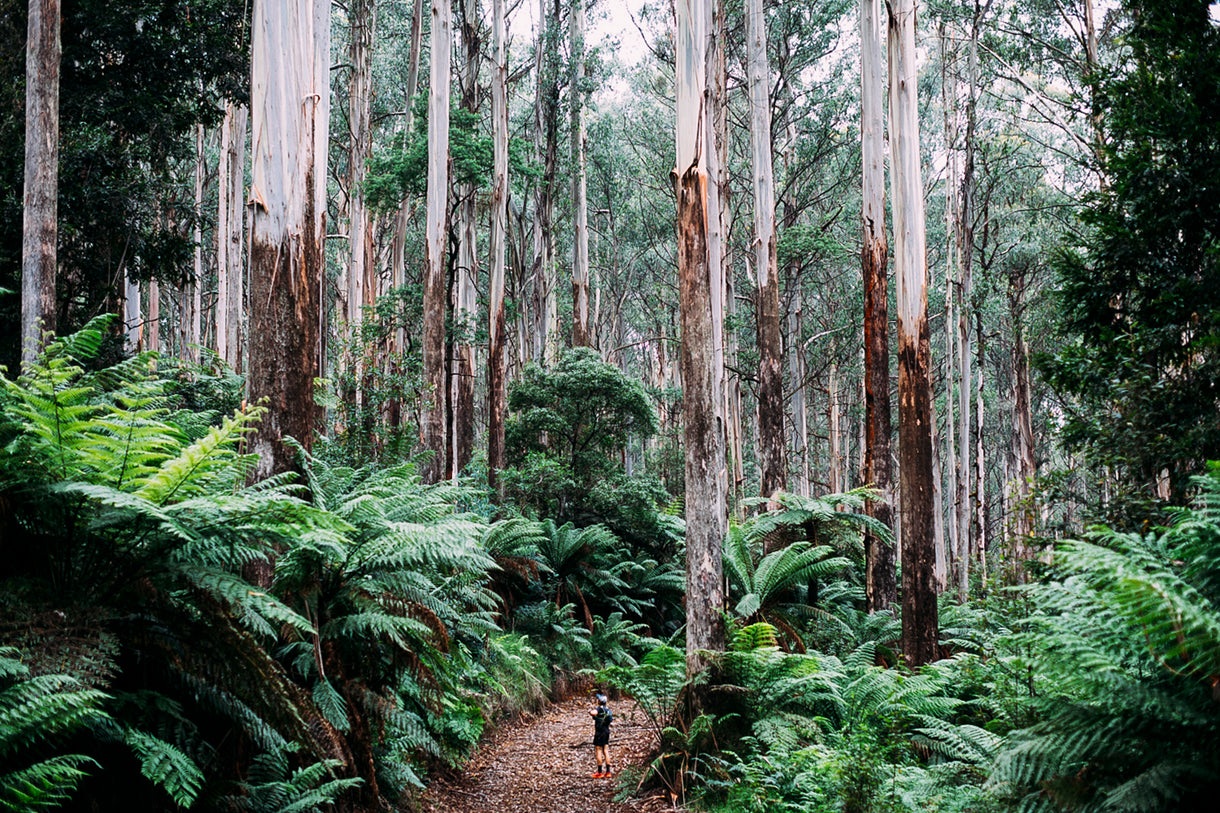Good people doing good work can also be hard to hear about. They are often too busy doing the work to be out beating their chests about it and demanding attention. There are a lot of uplifting stories and inspiring people living on the edge of this big brown land who deserve a tip of the hat and much more support.
This is where the idea for the surf activism movie Never Town came from. To help pockets of motivated coastal people know they belong to a larger movement that cares for this land and the ocean that surrounds it. To feel bolstered by seeing other folk, in other parts of Australia, working to protect their own ecology from threats that could undermine their way of life, and the health of their local environment.

At the same time as shining a light on grassroots activists, we wanted to celebrate what we are all striving to protect. We surf alongside great migrations of humpback whales (perhaps the greatest recovery story of any threatened species), we can all go dive or throw a line in to catch clean food for our families between surfs. We breathe clean air and can grow clean vegies. We enjoy vast sea and landscapes without human interruption. We can walk within old growth forests. We can surf while it rains at celebrated river mouths and not fear for our health. We can get lost in wilderness that puts us in our place in very real terms.
 Novocastrians are facing the prospect of their coastline being turned into an offshore gasfield, with seismic testing having already begun.
Novocastrians are facing the prospect of their coastline being turned into an offshore gasfield, with seismic testing having already begun.
We may think this is what it’s like for surfers all over the world, but sadly it isn’t. Try surfing in the rain in southern California, Bali or Japan and see what happens. Try and watch a great migration of anything but sunburnt humans when you’re on a European beach in summer. Look for landscapes that haven’t felt the hand of industrial man and you won’t find many.
These treasures we experience as daily life in Australia really are a fantasy for so many people around the world. We also have an opportunity – and an obligation – to spare this place from being spoiled in the way many other countries have been.

Globally, the loss of forests, the contamination of waters, the decimation of flora and fauna have all come from industrial practices that emulate the military tactic of dividing and conquering. First comes the idea that the “work” they will carry out is disconnected from the surrounding ecology, and thus won’t have any negative knock on effects. Next comes the conquering part where it is plain to see wild land and seascapes industrialised… and if local people try to oppose this they are to be conquered too.
This is an old colonialist tactic that we can rise above by banding together and dissolving industrial ideas of separation. This has happened recently in Australia with huge success. Attempts to industrialise the north west wild coast of Western Australia at James Price Point in 2013 were stopped by indigenous, local, and conservation groups working in solidarity to protect land and sea. In my home region of Northern New South Wales, we stopped the gas industry corporation Metgasco from fracking our fertile lands. More recently we have seen multinational oil giants BP and Chevron abandon plans to drill for oil in The Bight. The industrial approach of dividing our communities is failing. The old generalisation that it’s just “greenies, hippies and extremists” no longer works for the corporates. How can they say that when you have surfers standing next to farmers from Lock The Gate, and the Knitting Nannas holding down the frontline at blockades?
There are stories like this around the country that we need to hear about. Of course, they won’t surface within mainstream media channels that are propped up and supported by dirty industries, so we take it upon ourselves to share the stories and events of our time.
Never Town was intended to wrap up all these feelings and present them in a way that inspired a sense of pride in people when they think about their local area. Surfers especially feel protective of places of significance. A natural evolution of the old style of localism in surfing sees fired up locals focussing on the real threats of water contamination, coastal development, the industrialisation of wild spaces and many more threats to coastal ecology.
 The crew in Elliston filled the town hall to speak up against the prospect of deepwater oil drilling in the Great Australian Bight
The crew in Elliston filled the town hall to speak up against the prospect of deepwater oil drilling in the Great Australian Bight
We aimed at making a movie that people would want to come and see at the local community hall in the same way we used to when any surf flick would come to town before the internet age divided us into our homes, staring at our own personal screens. Part of surfing’s heritage is the surf movie night where we all get together to hoot at the waves on the big screen, laugh and cringe at the wipeouts and talk about how we have our own local version of the waves on screen… except way bigger and better of course!
NeverTown aimed for a new incarnation of the surf movie night. Taking the energy generated on the night and aiming it towards something tangible for the local community and ecology. Local grassroots groups attended the nights at the halls and worded up the community on threats to the local way of life and ecology that sustains everyone. Petitions were passed around and signed, and membership to the local conservation group swelled. Seeing other Aussies in the movie celebrating and protecting their local zones created a motivation for the audience to feel the same, and having the local groups there on the night gave people the instant opportunity to do something. Each screening gathered hundreds of petitions for local issues and created much needed support for conservation groups.
The vague terms “save the environment” or “change the world” are so overused and meaningless these days that they elicit very little response in us. We have no target when we read these words. But if we remove “the” in “save the environment” and exchange it for “your”, we instantly have something to focus on. Your environment becomes something you can wrap your head around. As surfers, and coastal people, that means our rivers and beaches, our coastlines and offshore currents that are home to the waves we love and the animals that share their space with us. Gone is that overwhelmed feeling of well, what can I do? In its place is the very real target of stopping industrial fish farming coming to local pristine waters, or big oil invading wild southern oceans.
The characters in NeverTown, like Charlie Stubbs in King Island, Anna Taylor in South Australia and surfing icon Wayne Lynch are very much aware of the bigger picture in the world, but they are rightly focussed on their immediate surroundings. They know their daily world in a way only a local person can, and so who better to speak for these places, and who better to protect them? With this in mind, us surfers and coastal folk are crucial in the effort to save our environment, and the current wave of people doing so is proof that a grassroots movement of coastal custodians is surfacing all along the edge of this wild country. As legendary author, conservationist and anarchist Edward Abbey said, “It’s not enough to understand the natural world. The point is to defend and preserve it.”
Watch the full movie Never Town Online now.
 Tim Jones, Anna Taylor and Dave Rastovich in Elliston. Anna has been leading the Fight For The Bight Elliston chapter and her story features in Never Town.
Tim Jones, Anna Taylor and Dave Rastovich in Elliston. Anna has been leading the Fight For The Bight Elliston chapter and her story features in Never Town.
